Professional Courses
Industry-relevant training in Business, Technology, and Design
Categories
Interactive Games
Fun games to boost memory, math, typing, and English skills
Typing
Memory
Math
English Adventures
Knowledge
ICSE Chemistry Simplified: Building a Strong Foundation in Science
ICSE Chemistry Simplified: Building a Strong Foundation in Science
.jpg?width=500)
ICSE Chemistry is one of the most concept-rich subjects in the ICSE syllabus. It introduces students to the foundations of scientific thinking, analytical reasoning, and problem-solving. From atomic structure and chemical bonding to acids, bases, and organic chemistry, the subject shapes a student’s understanding of how the world works at a molecular level. Yet many students feel overwhelmed because Chemistry involves abstract ideas, formulae, experimental processes, and application-based thinking. With the right guidance, structured study methods, and supportive resources, ICSE Chemistry becomes not only manageable but genuinely exciting.
Parents and students often look for ICSE help that simplifies complex explanations, offers clarity, and makes learning more interactive. Board-aligned tools such as AllRounder.ai help break down complicated topics, provide visual understanding, and deliver consistent practice. This article explains how students can build a strong foundation in ICSE Chemistry using effective study habits, structured learning resources, and a deeper understanding of how the ICSE board approaches science education.
Understanding the ICSE Approach to Chemistry
The ICSE board follows an analytical and application-oriented approach to learning. The syllabus does not encourage memorisation without understanding. Instead, students are expected to grasp concepts, interpret chemical relationships, and apply principles to new situations. The Understanding the ICSE Board and Its Educational Approach resource explains how the board promotes deeper reasoning and inquiry-based learning across science subjects.
ICSE Chemistry emphasises:
- Conceptual clarity
- Real-world application
- Experimental understanding
- Logical reasoning
- Structured problem-solving
This method aligns with the analytical nature of science education and prepares students for higher studies, as explained in How the ICSE Syllabus Prepares Students for Higher Studies. Students learn to think like young scientists rather than simply repeat textbook information. This strong foundational training helps them transition smoothly to advanced Chemistry in Grades 11 and 12.
Why ICSE Chemistry Feels Challenging for Many Students
Many learners find ICSE Chemistry difficult because the subject introduces abstract scientific concepts early in their academic journey. The transition from basic general science to structured Chemistry can feel overwhelming. Students must learn to visualise particles they cannot see, understand formulas, memorise symbols, and work with theoretical and practical frameworks at the same time.
The ICSE Study Help to Tackle Concept-Heavy Subjects guide explains that Chemistry requires students to manage large conceptual blocks, which need step-by-step learning rather than rushed reading. Without strong foundations, students may find themselves confused when approaching advanced chapters such as chemical bonding, stoichiometry, or organic chemistry.
Another reason the subject feels challenging is that students often rely heavily on rote learning. The ICSE Focus on Analysis Over Rote Learning article highlights why this approach does not work for ICSE Chemistry. Students who try to memorise formulas without understanding their origin struggle with applications and numerical problems. Chemistry becomes easier when students approach it through reasoning rather than memorisation.
Building a Strong Foundation Using ICSE Textbooks
ICSE textbooks are structured to introduce concepts gradually and clearly. Parents can encourage students to start with understanding the explanations rather than jumping directly to questions. Reading the textbook slowly, highlighting definitions, and making small notes can help build familiarity with scientific language.
Students should treat each chapter as a sequence of interlinked ideas. For example, understanding atomic structure is essential before moving on to bonding. Similarly, grasping the periodic table helps in predicting trends and applying them to chemical properties. The ICSE Subject Guide for Group I, II, and III explains how subjects are grouped and structured for progressive learning.
ICSE textbooks often provide simple illustrations, diagrams, and examples that simplify complicated ideas. Students should refer to these visuals frequently because Chemistry is easier to understand when learners can picture what is happening at the molecular level.
Strengthening Fundamentals Through Conceptual Learning
Conceptual learning is the backbone of ICSE Chemistry. Instead of memorising equations blindly, students should understand why reactions happen, how changes occur, and what principles govern chemical behaviour.
A helpful strategy is to relate chemical concepts to real-life examples. When students connect neutralisation to antacid tablets or oxidation to rusting, Chemistry begins to feel practical and engaging. This approach aligns with the ICSE philosophy described in Why Choose the ICSE Board for Your Child’s Future, which emphasises real-world relevance as a core part of learning.
Conceptual clarity is also supported by structured learning tools such as AllRounder.ai ICSE Courses. These lessons simplify the language of Chemistry, break down complex topics, and offer visual explanations that make concepts easier to understand.
Using Interactive Learning to Make Chemistry Engaging
Chemistry becomes more interesting when students can visualise reactions and test their understanding through interactive tools. Activities such as virtual experiments, simulations, and quick quizzes allow learners to explore topics in a hands-on manner even when access to a physical lab is limited.
Digital platforms like AllRounder.ai Games are helpful because they transform difficult concepts into engaging learning experiences. Students can revise chemical symbols, formulas, and reactions through interactive activities, making repetition enjoyable rather than tedious.
Engagement enhances memory, especially for subjects that rely heavily on application and recall. Students who enjoy learning are more likely to stay consistent and confident.
Building Confidence Through Regular Practice
Chemistry requires constant revision and practice. Students must reinforce concepts regularly and test themselves frequently. Practice builds confidence and reduces exam anxiety. It also helps students identify areas where they need more clarity.
Students can use AllRounder.ai Practice Tests to evaluate their understanding of ICSE Chemistry chapter by chapter. These tests provide instant feedback, highlight strengths, and reveal areas that need improvement. With consistent practice, students gradually develop mastery and confidence.
Breaking Complex Topics Into Smaller Steps
Large topics such as chemical bonding, electrolysis, or organic chemistry can feel intimidating. Students often try to memorise everything at once, leading to confusion. The ICSE Study Help resource recommends breaking topics into smaller subtopics.
For example, students can divide electrolysis into:
- Definition and principles
- Electrolytes and non-electrolytes
- Electrolytic cell diagram
- Ion movement
- Applications
Breaking topics into smaller steps helps students stay organised and reduces cognitive overload.
Developing Numerical Skills with Step-by-Step Methods
ICSE Chemistry involves numerical problems in areas such as mole concept, stoichiometry, empirical formulas, and percentage composition. These problems can be challenging if students do not follow a step-by-step process.
Parents and teachers can encourage students to:
- Read numerical questions slowly
- Write down given data
- Identify formulas needed
- Solve problems systematically
Practice is essential because numerical skills improve through repetition. Using structured question sets in AllRounder.ai Practice Tests helps students master these skills through guided practice.
Learning Chemistry Through Visualisation
Chemistry is a visual subject. Students understand concepts better when they picture molecules, ions, structures, and reaction processes. ICSE textbooks offer diagrams and illustrations, but digital tools can amplify this visual understanding.
Students can benefit from:
- Drawing atomic structures
- Sketching chemical bonds
- Creating concept maps
- Using visual revision notes
These techniques promote long-term comprehension. Visual learning aligns with the approach described in How ICSE Help Platforms Simplify Learning for Students, which emphasises clarity and structured explanation over memorisation.
Using Grade-Wise Preparation for Long-Term Success
ICSE Chemistry builds from one grade to the next. Students who develop strong fundamentals in earlier grades find it easier to understand advanced concepts later.
Parents can introduce ICSE Chemistry support gradually across:
- Grade 8 Courses for foundational science
- Grade 9 Courses for basic Chemistry concepts
- Grade 10 Courses for board exam preparation
Students who continue with Chemistry in senior school can explore:
Here, foundational ICSE learning supports advanced applications.
Understanding the ICSE Exam Structure for Chemistry
Knowing how the exam is structured reduces stress and improves performance. The Parent’s Guide to the ICSE Exam Structure and Evaluation System explains how ICSE evaluates students across theory and practical components.
For Chemistry, students must understand how marks are divided among:
- Short-answer questions
- Long-answer questions
- Numerical problems
- Application-based questions
- Practical-based questions
Understanding this structure helps students prepare strategically. They learn to allocate time effectively and recognise which topics require more attention.
Encouraging Regular Revision Through Smart Habits
Revision is essential because Chemistry concepts build on one another. When students revise regularly, they reinforce earlier concepts and stay prepared for new chapters.
Parents can guide students to revise notes weekly, practise numerical problems consistently, and take short quizzes to refresh their understanding. The Power of Consistency: How Small Daily Habits Lead to Academic Success article highlights how consistent revision leads to better retention and improved performance.
Students who revise regularly feel more confident during tests and exams.
Relating Chemistry to Everyday Life
Chemistry becomes much easier when students connect it to real-life applications. When they see how concepts appear in cooking, cleaning, medicine, materials, agriculture, and industry, the subject feels relevant and engaging.
Parents can discuss everyday examples such as:
- Rusting and oxidation
- Neutralisation in digestion
- Chemical reactions in cooking
- Cleaning agents and surfactants
This approach supports conceptual clarity and makes ICSE Chemistry more intuitive.
Strengthening Practical Understanding
Practical knowledge is a key part of ICSE Chemistry. Students must understand laboratory techniques, safety rules, and basic experimental procedures. Even if they cannot perform experiments frequently, they can study diagrams, read procedures carefully, and watch demonstrations.
Digital tools bridge this gap by offering video-based explanations and virtual experiments. The ICSE board encourages scientific inquiry, which is highlighted in the ICSE educational approach resource.
How Digital Resources Improve Learning
Digital platforms like AllRounder.ai make ICSE Chemistry easier by:
- Simplifying complex concepts
- Providing structured learning paths
- Offering interactive games
- Giving instant practice-test feedback
They complement ICSE textbooks and align with the structured board-focused approach of ICSE.
Conclusion
ICSE Chemistry becomes far more approachable when students build strong fundamentals, visualise concepts, practise consistently, and connect the subject to real life. A combination of clear ICSE textbooks, supportive guidance, interactive tools, and regular revision helps students strengthen their scientific thinking.
With structured digital support from AllRounder.ai, students can understand challenging concepts, test their knowledge, and build confidence across grades. From foundational classes to board exam preparation, a thoughtful approach transforms ICSE Chemistry from a difficult subject into a meaningful and enjoyable scientific journey.
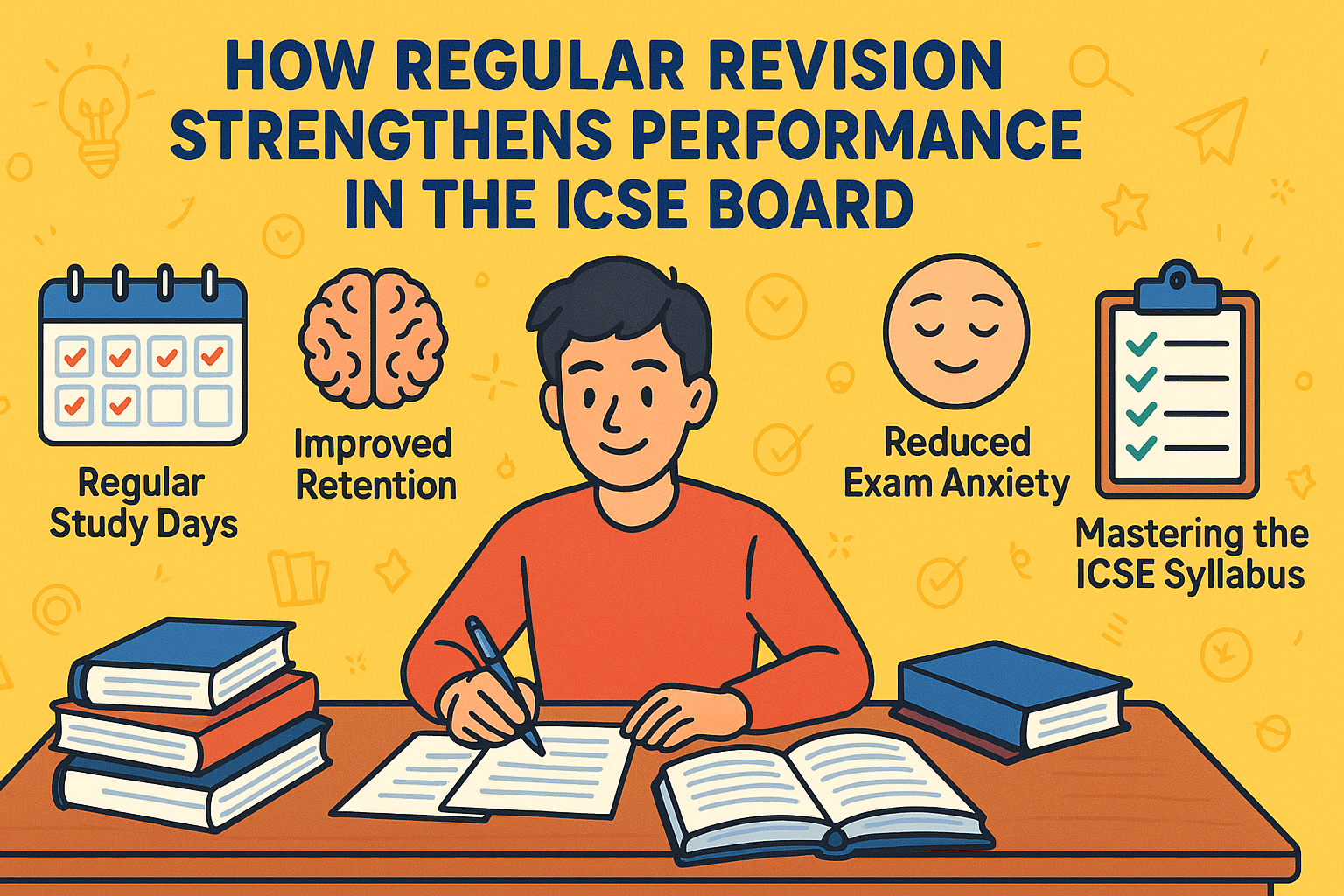
Learn how regular revision strengthens performance in the ICSE board, improves retention, reduces exam anxiety, and...

Learn how to create a reading-friendly home environment for ICSE students to improve comprehension, confidence, and...

Learn how to encourage curiosity and inquiry in ICSE learners by supporting concept clarity, safe questioning, and...

Explore the role of parents in supporting ICSE academic growth, from understanding the ICSE curriculum to building...
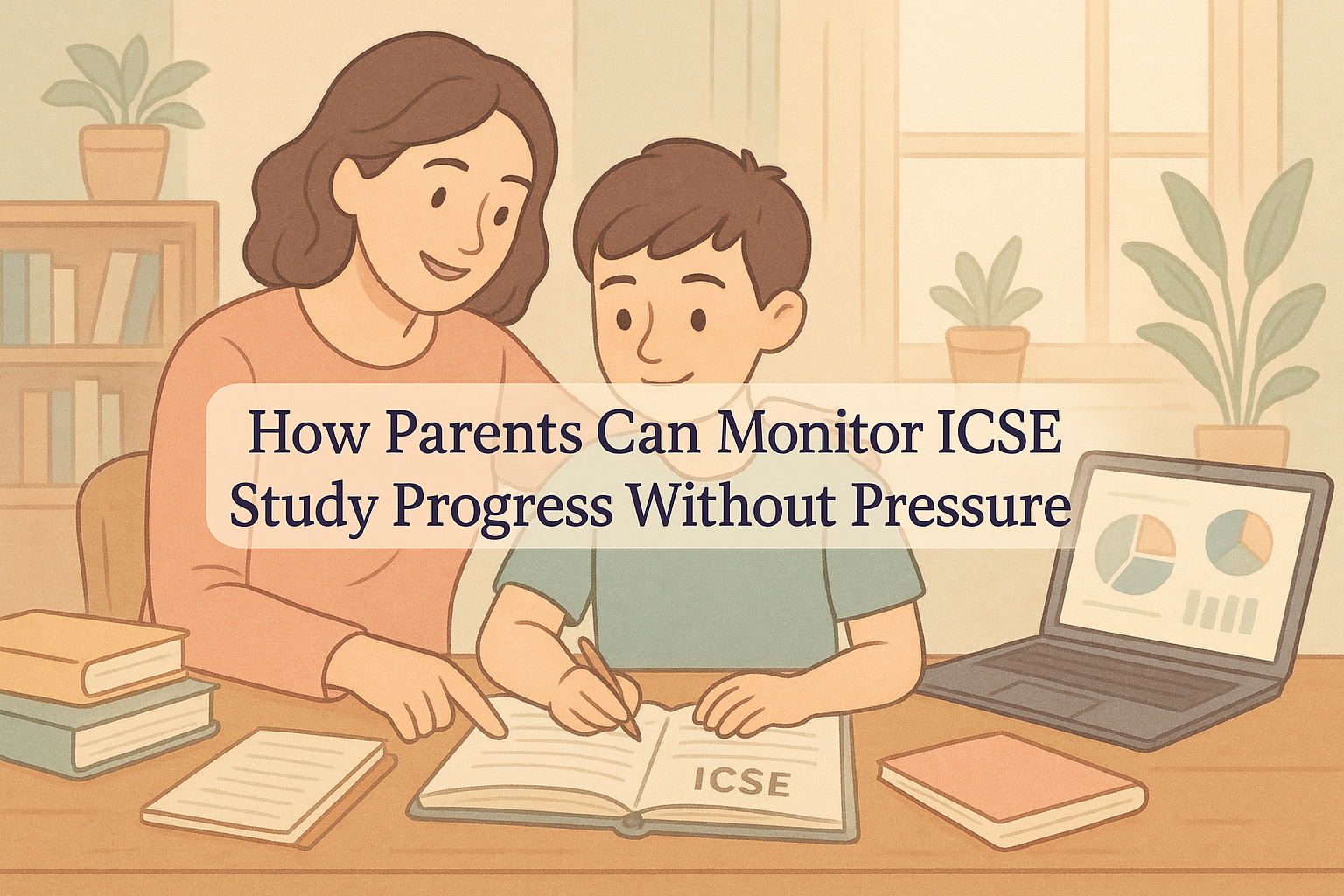
Learn how parents can monitor ICSE study progress without pressure, support concept clarity, reduce stress, and help...

Learn the essential time management skills every ICSE student should build early to handle the syllabus, reduce...
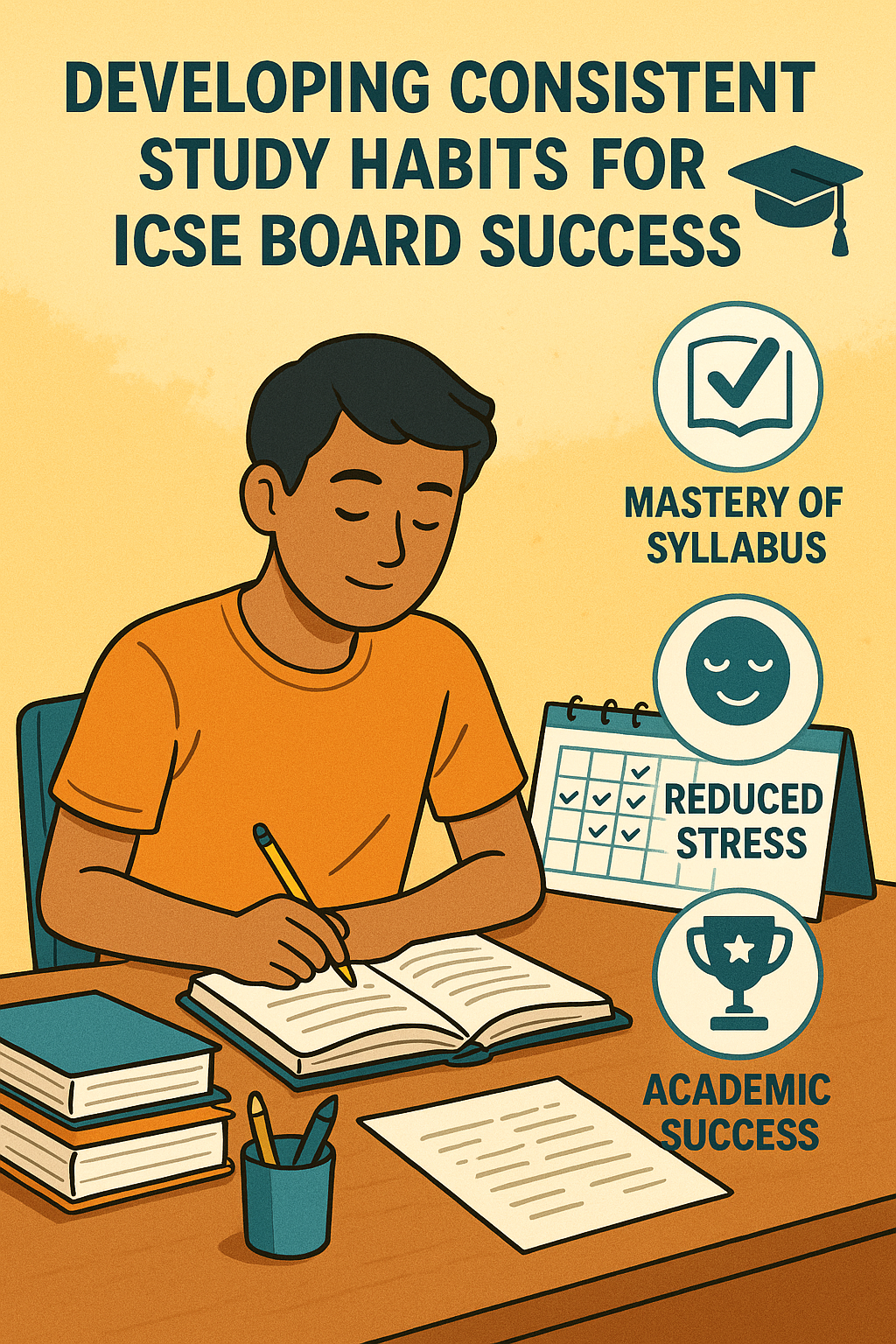
Learn how consistent study habits help ICSE students master the syllabus, reduce stress, and achieve long-term...
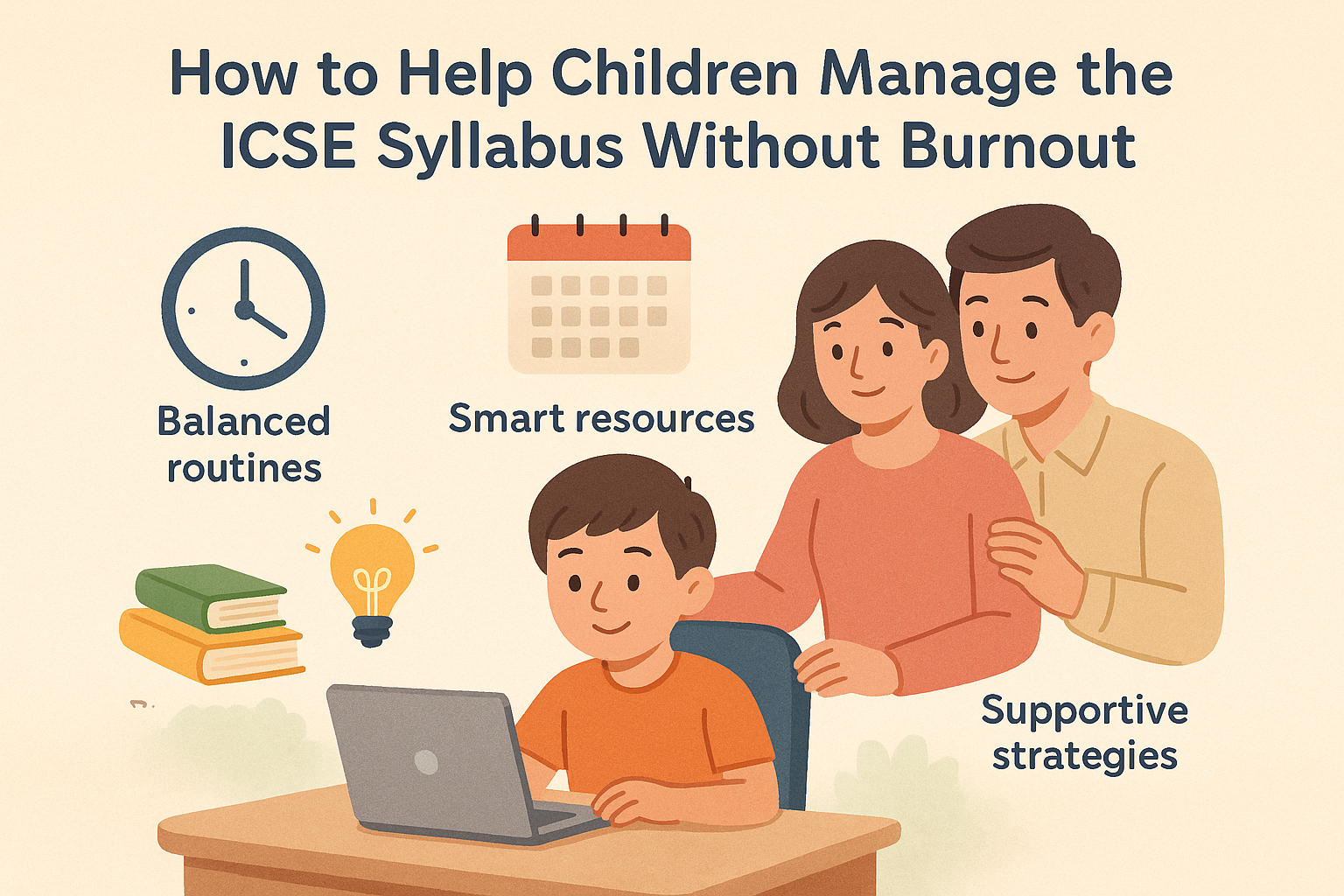
Learn how parents can help children manage the ICSE syllabus without burnout using balanced routines, smart...
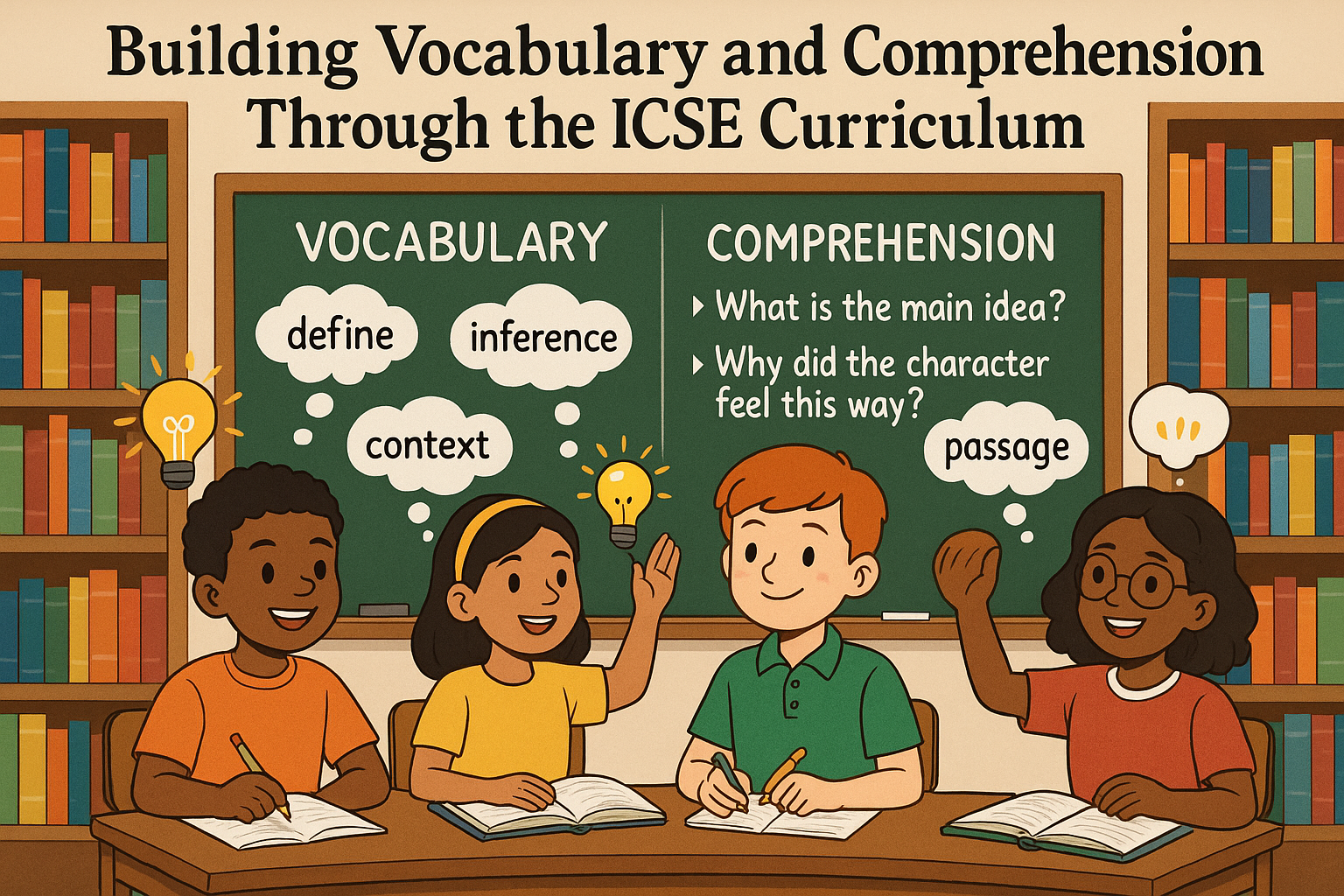
Learn how the ICSE curriculum strengthens vocabulary and comprehension skills while helping students think deeply...
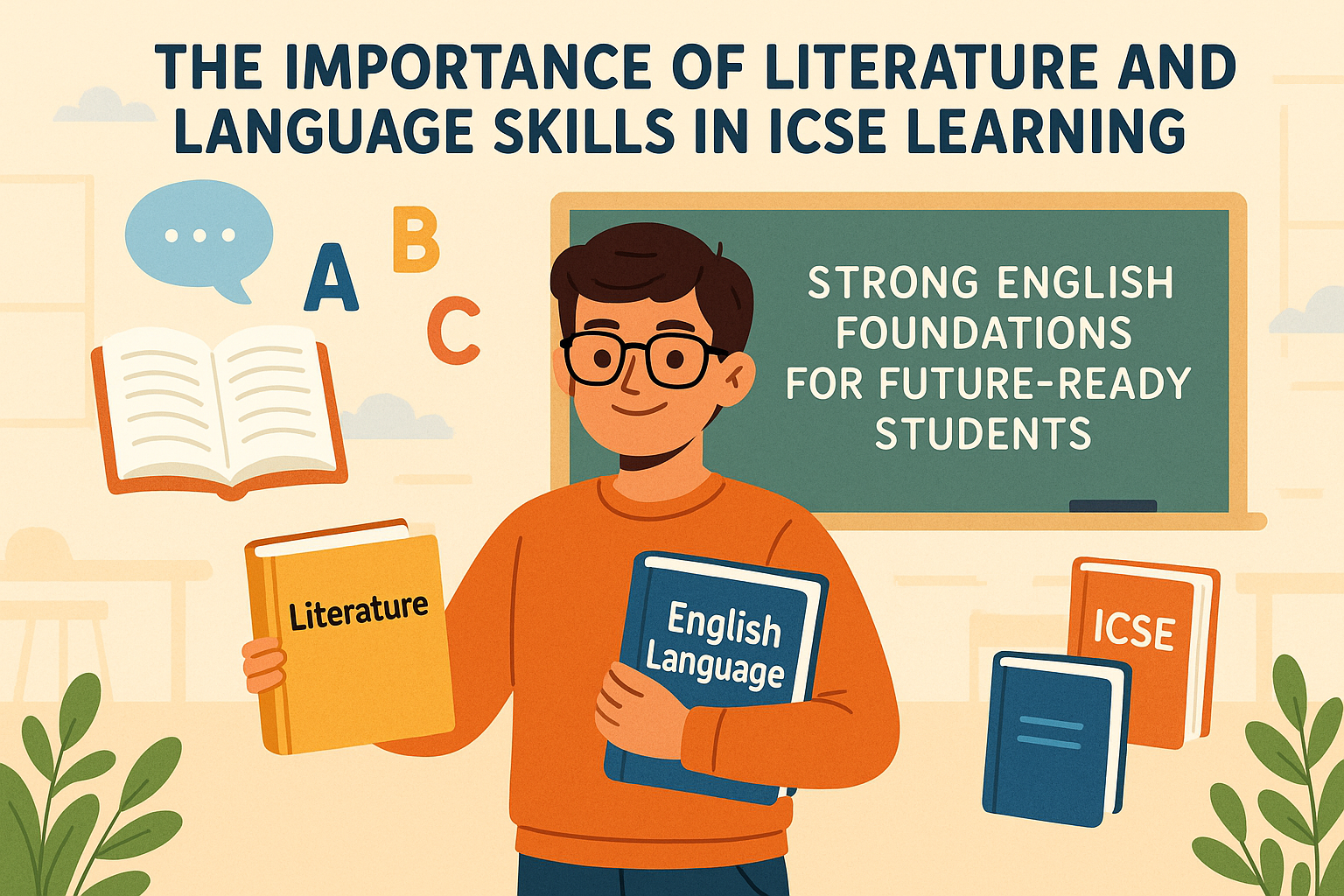
Explore why literature and language skills are central to ICSE learning and how strong English foundations shape...
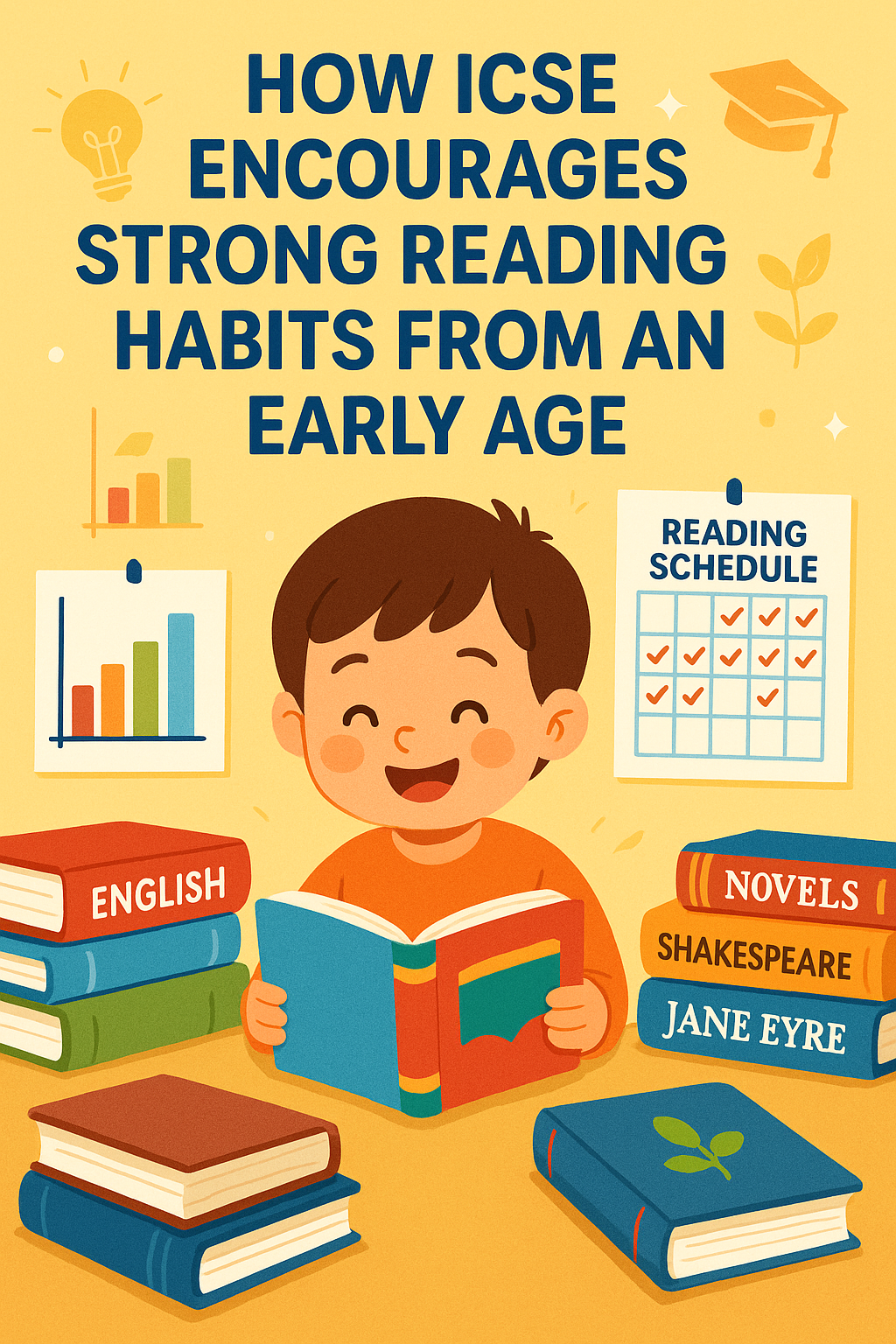
Discover how the ICSE curriculum builds strong reading habits early through textbooks, literature, and structured...
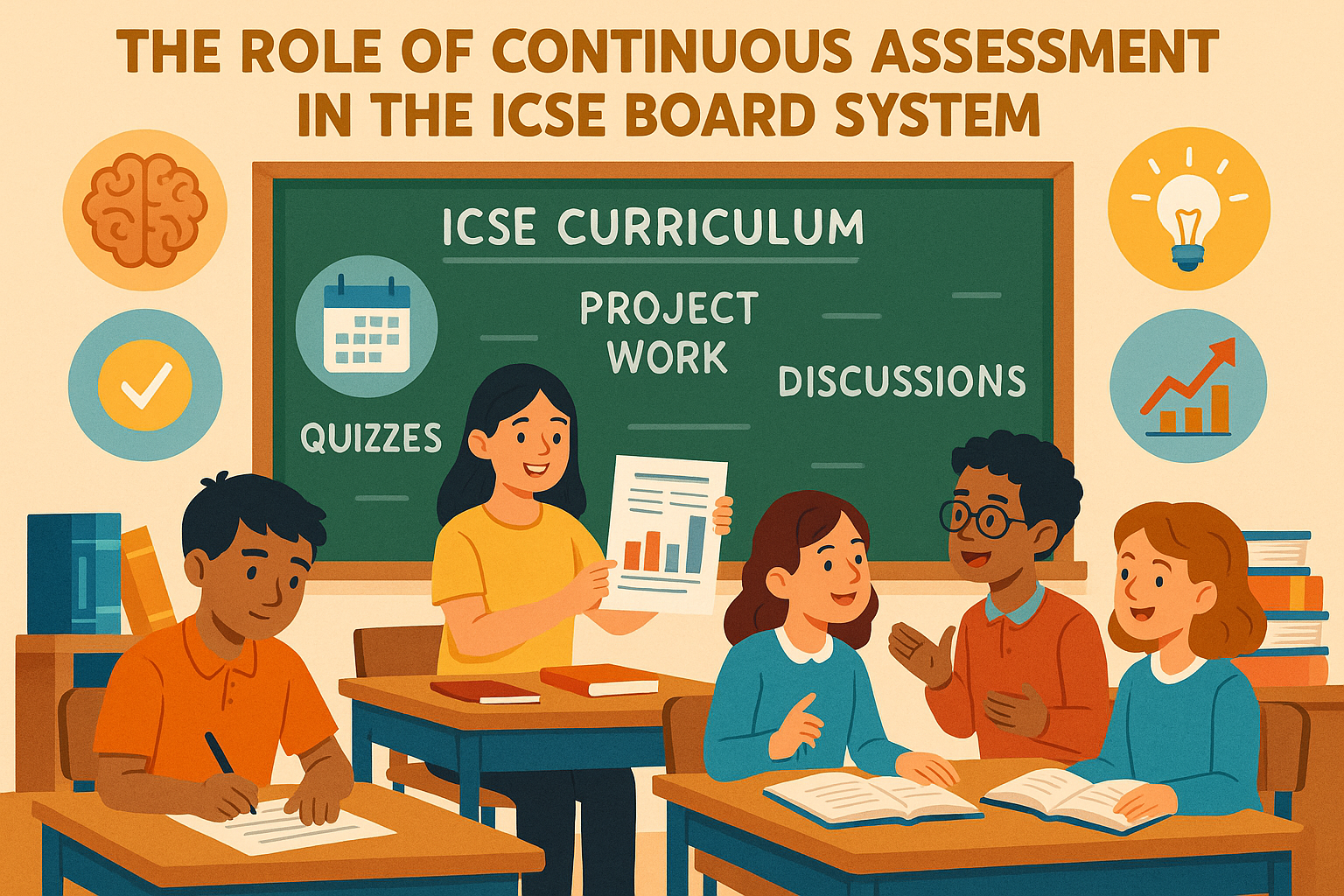
Understand how continuous assessment strengthens the ICSE curriculum by supporting deep learning, consistency, and...

Explore what makes the ICSE curriculum academically rigorous and why its depth, structure, and assessment style...
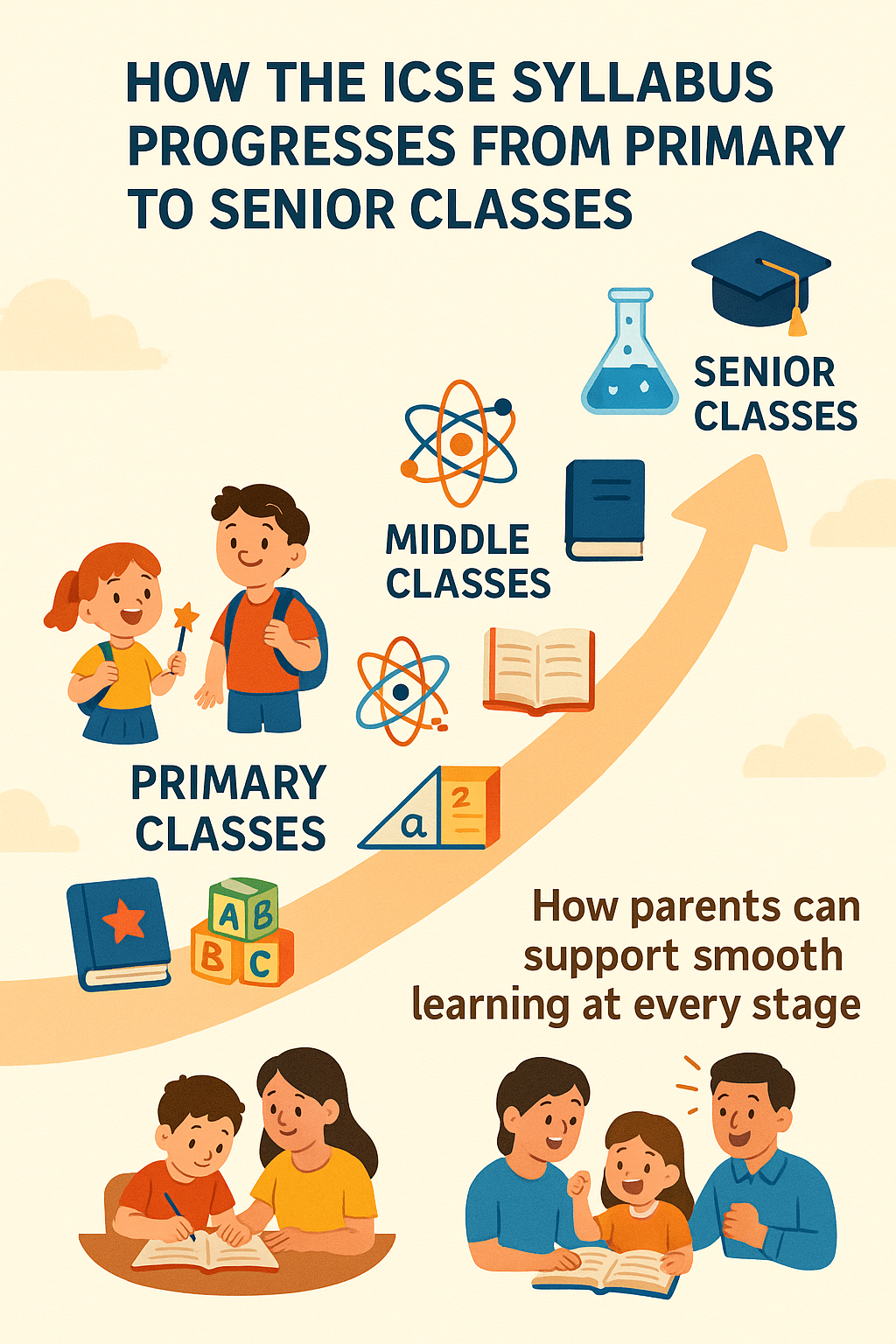
Understand how the ICSE syllabus progresses from primary to senior classes and how parents can support smooth...

Learn ICSE-specific methods parents can use to help children overcome exam anxiety, build confidence, and approach...
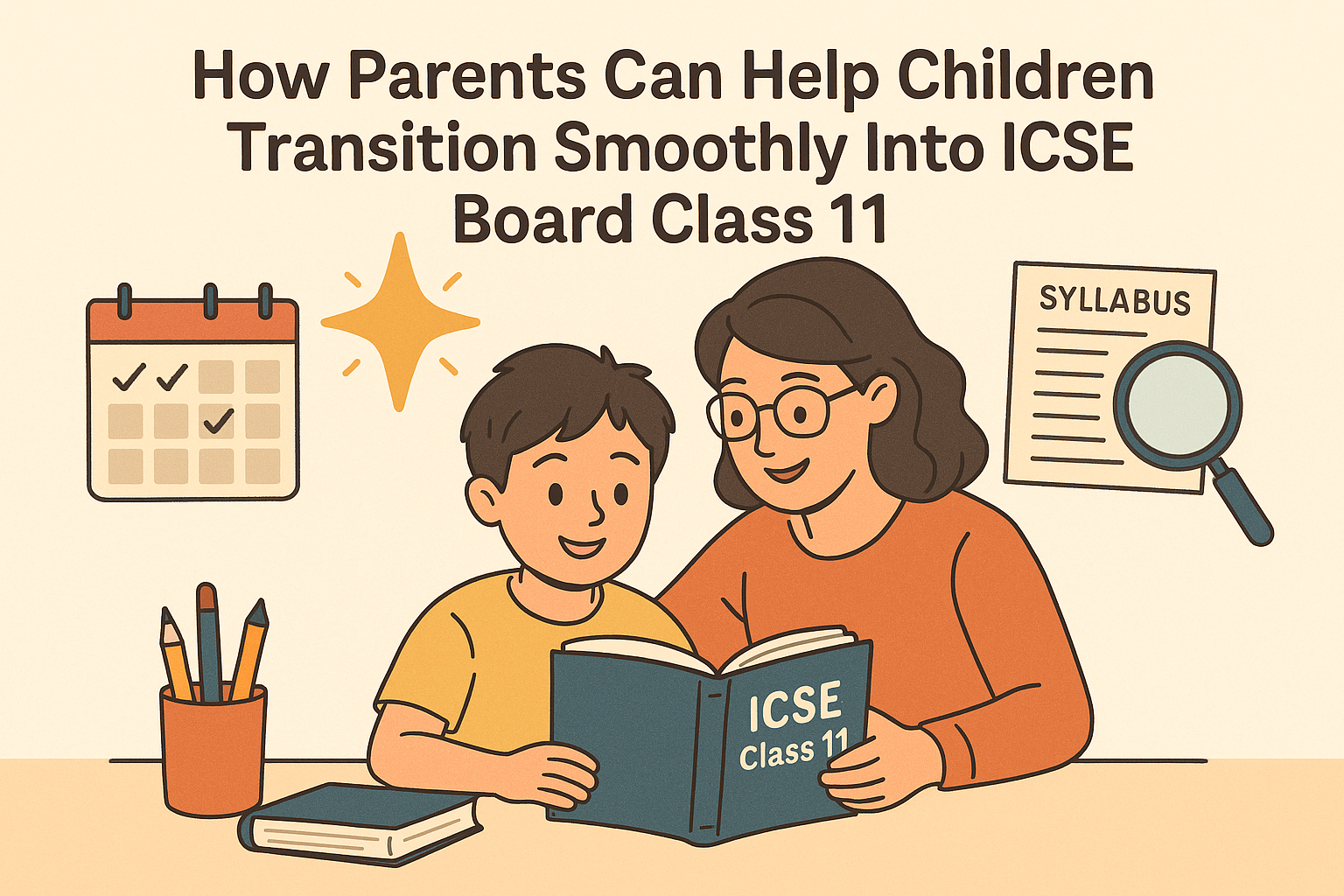
Learn how parents can support a smooth transition into ICSE Class 11 by building habits, confidence, and clarity...
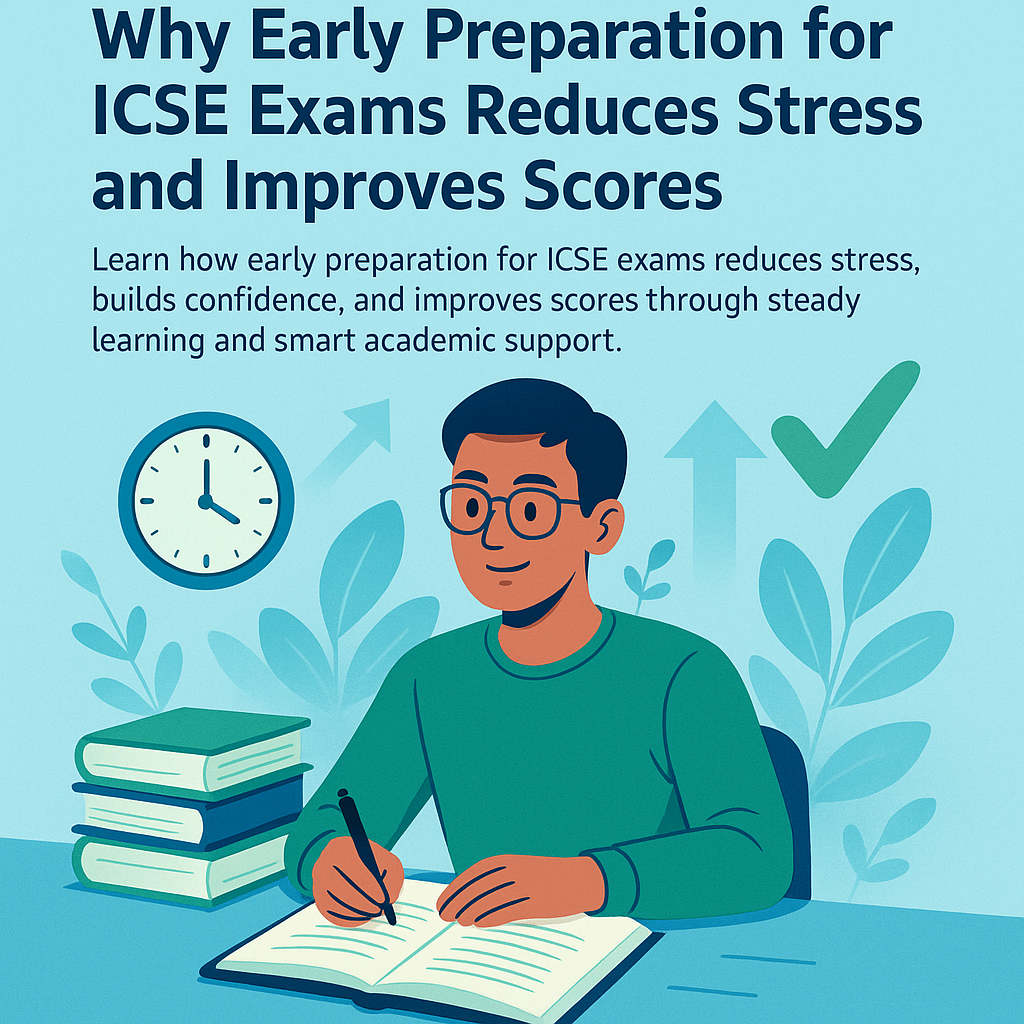
Learn how early preparation for ICSE exams reduces stress, builds confidence, and improves scores through steady...

Learn how to use ICSE textbooks and supplementary guides effectively without overwhelming students, while building...

Discover what ICSE topper strategies reveal about effective parental support and how parents can guide learning...

Understand why ICSE students are excelling in competitive exams and how the ICSE curriculum builds strong concepts,...
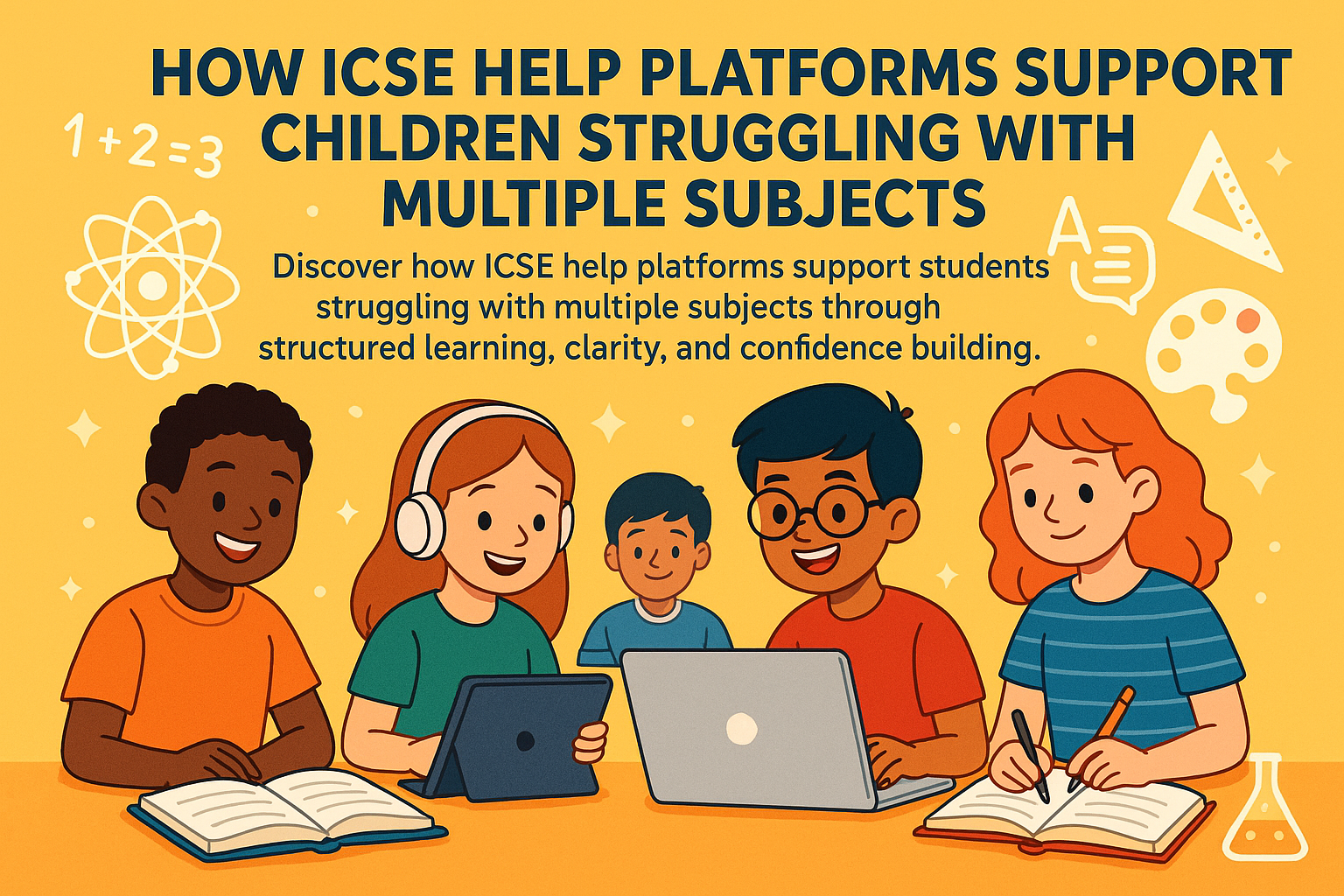
Discover how ICSE help platforms support students struggling with multiple subjects through structured learning,...
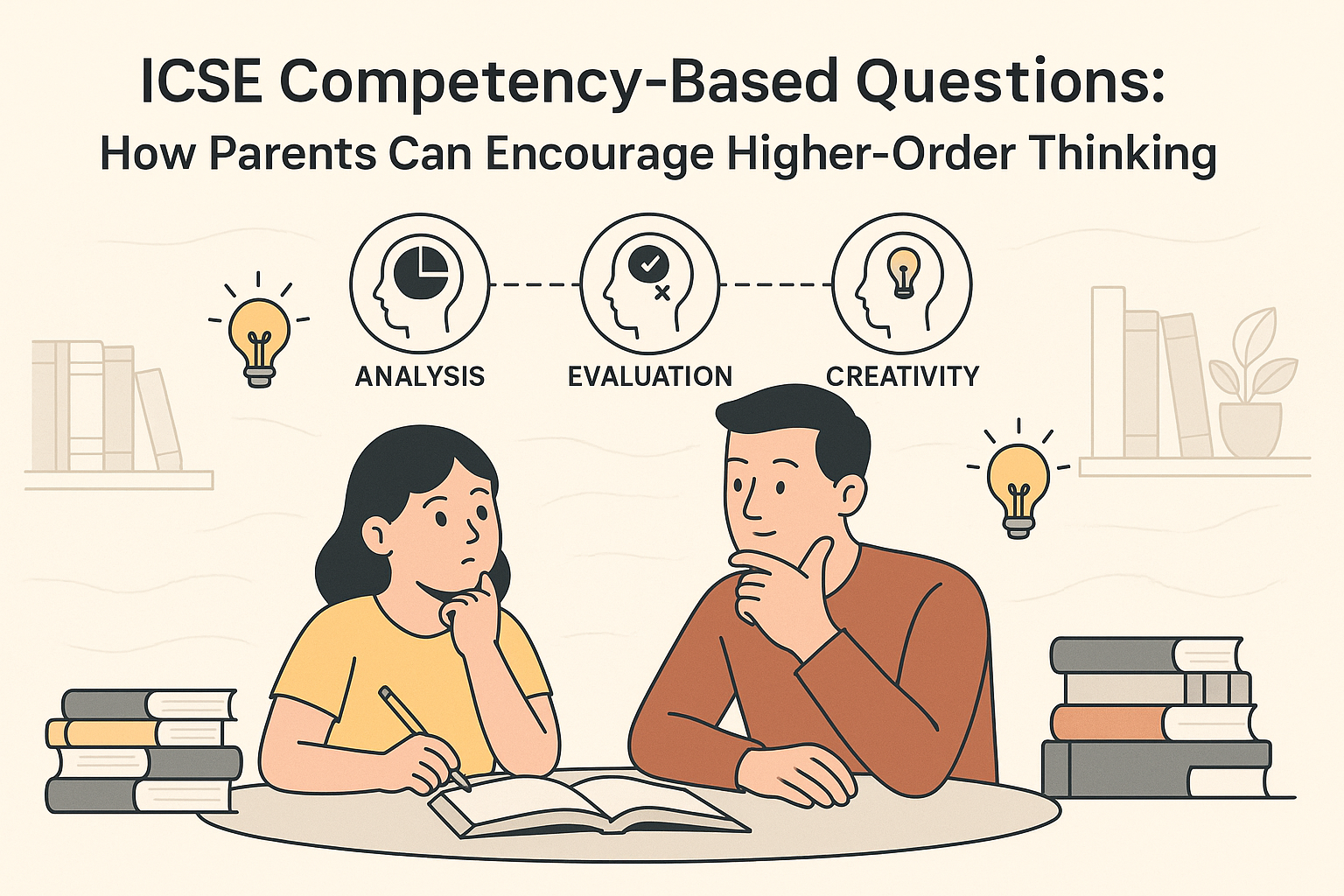
Learn how ICSE competency-based questions build higher-order thinking and how parents can support children through...
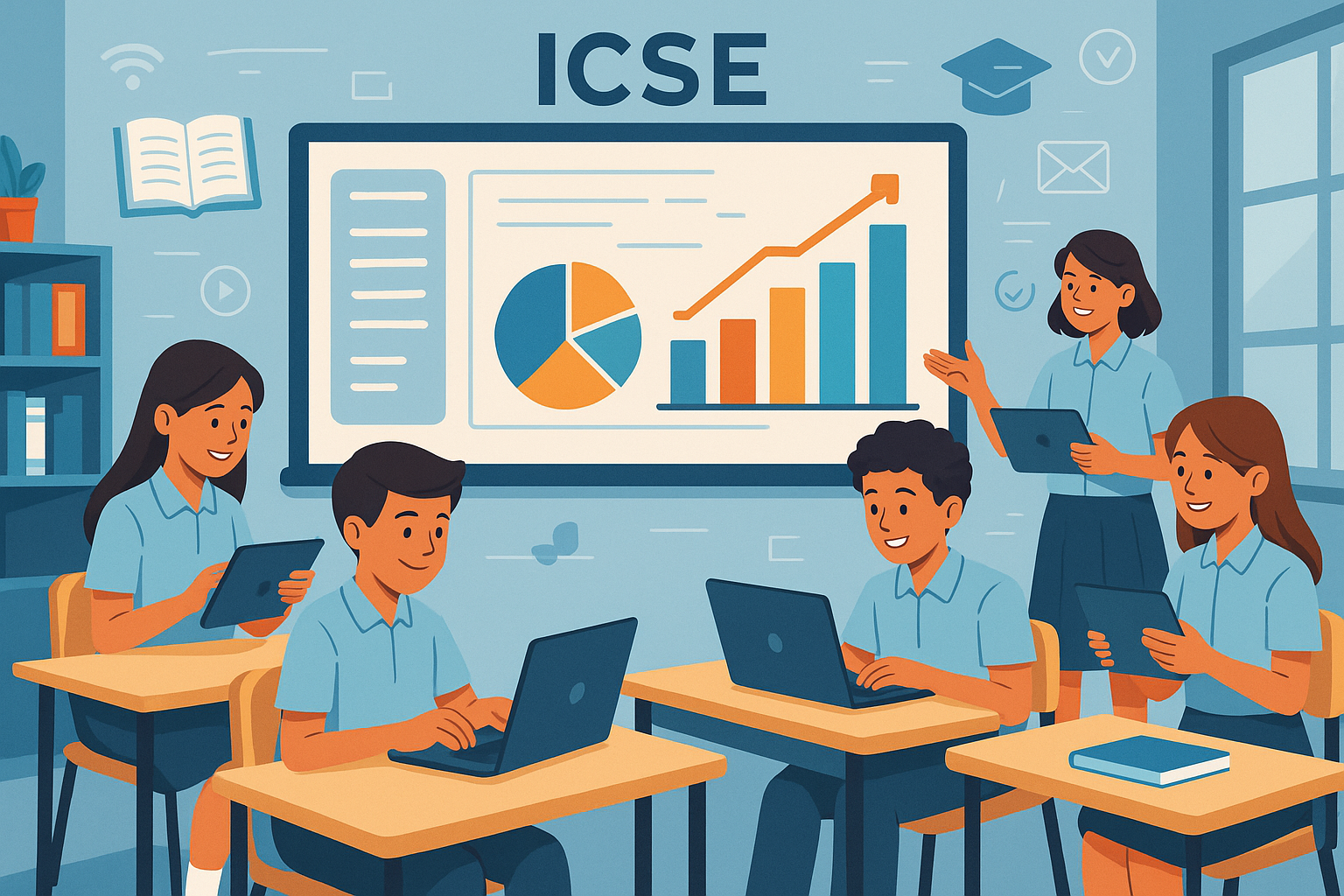
Explore how digital learning is reshaping ICSE schools by improving concept clarity, engagement, and academic...

Learn how to build strong self-study habits at home using ICSE help resources that improve understanding, confidence...

Understand how practical learning in ICSE schools builds clarity, confidence and real world skills that prepare...

Learn how project-based learning is transforming ICSE classrooms and helping students build real-world skills...
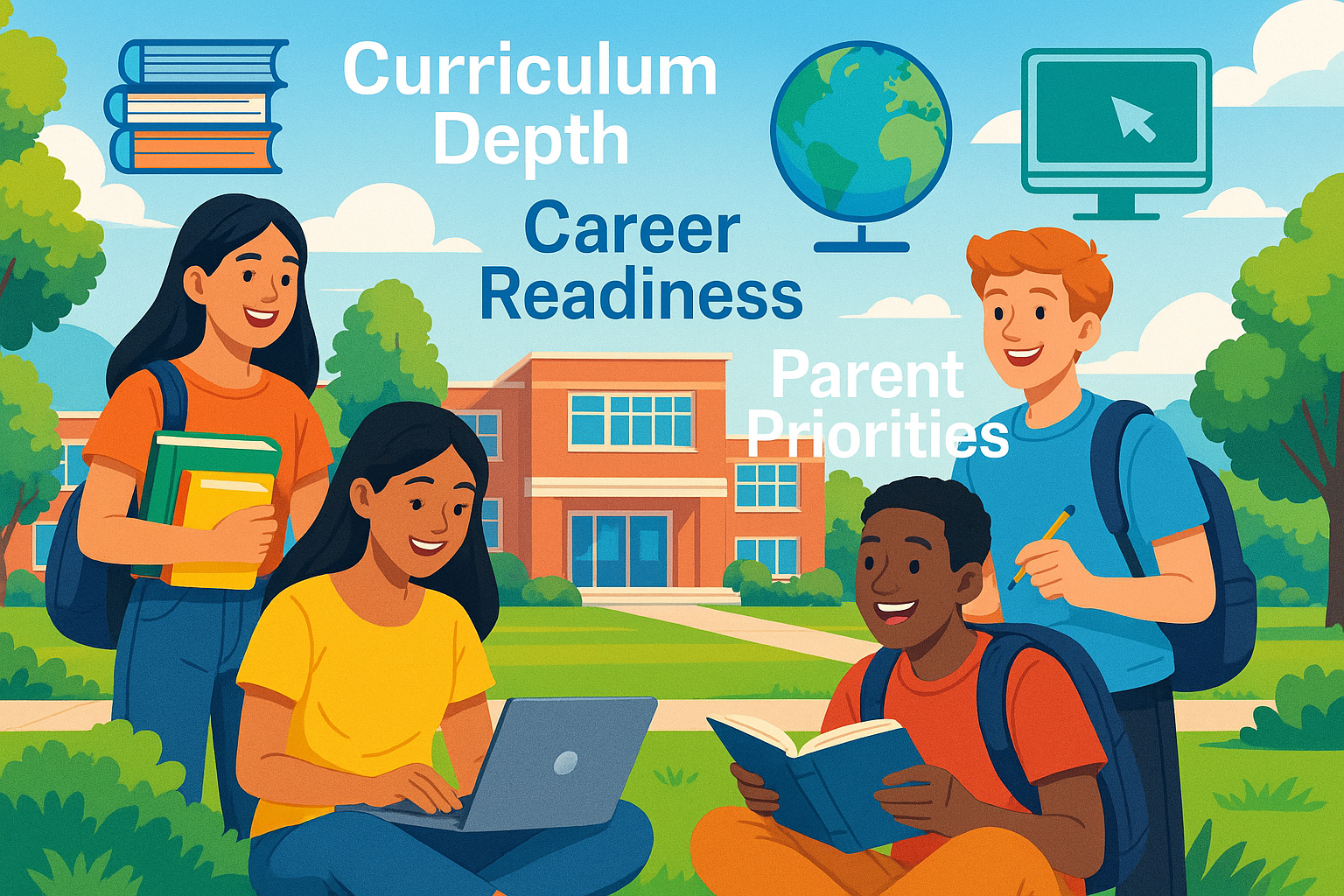
Explore why ICSE schools are gaining popularity in tier-2 cities and how curriculum depth, career readiness and...

Explore how recent ICSE syllabus realignments are equipping students with future-ready skills, career adaptability...
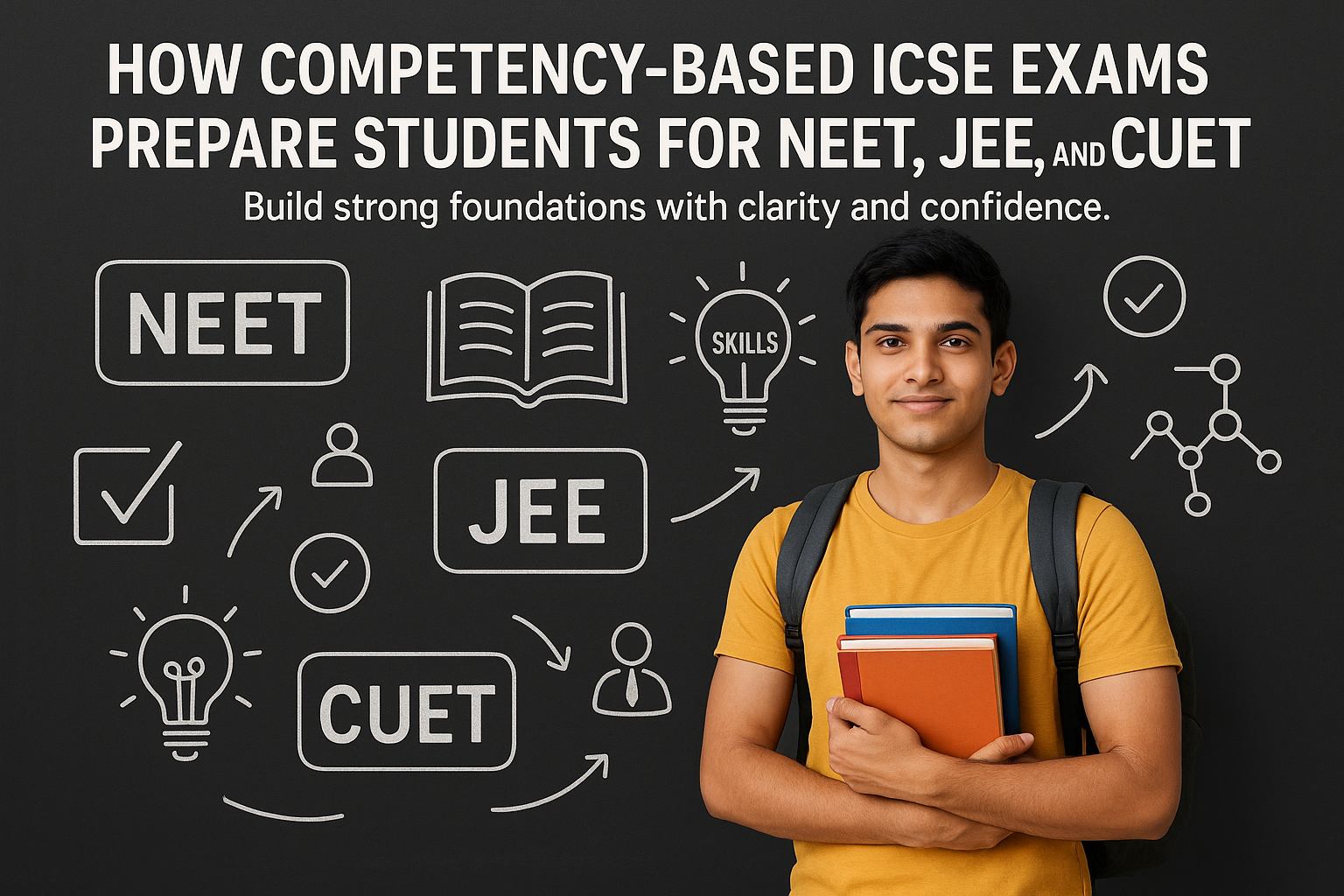
Understand how competency-based ICSE exams build strong foundations that prepare students for NEET, JEE and CUET...
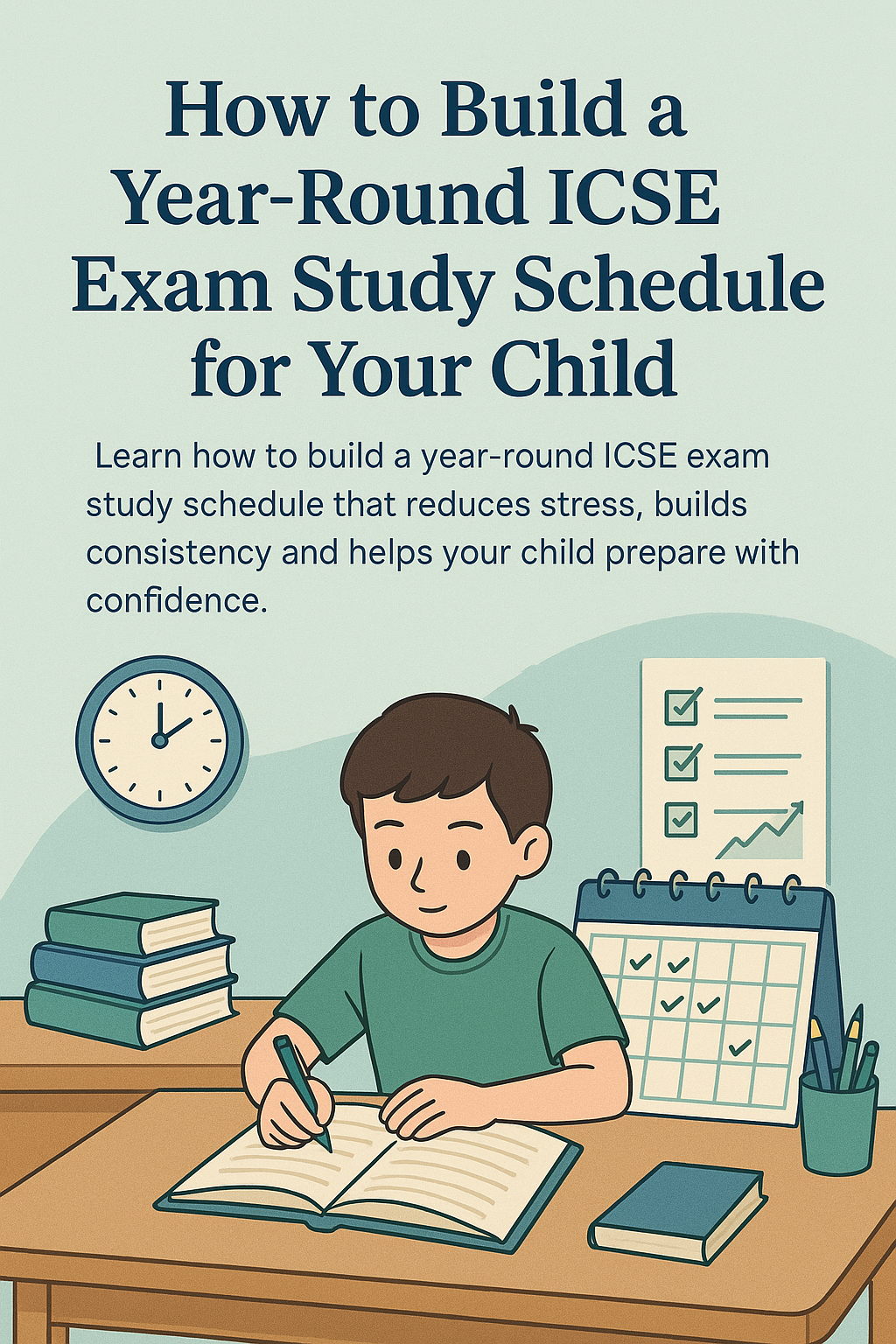
Learn how to build a year-round ICSE exam study schedule that reduces stress, builds consistency and helps your...
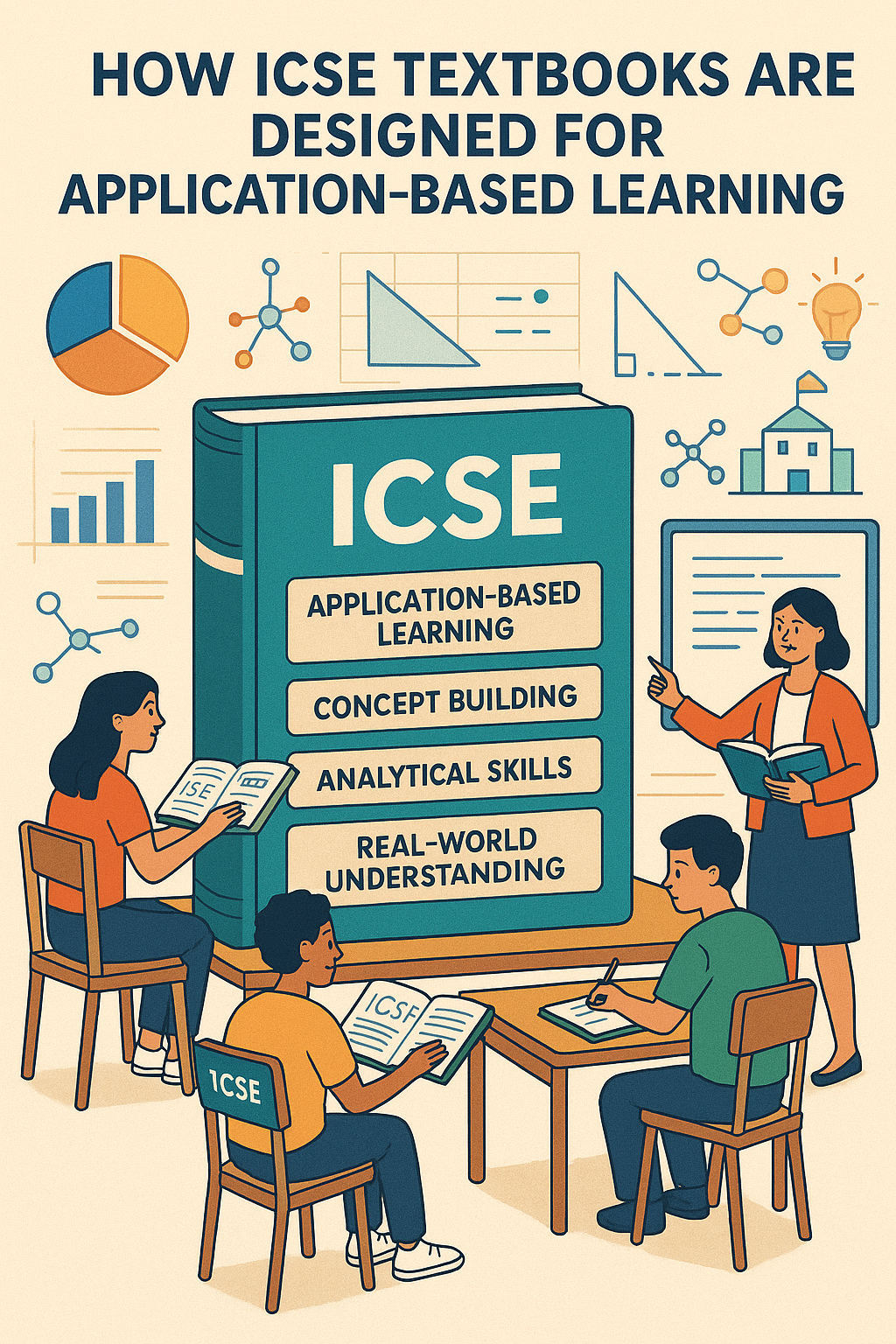
Understand how ICSE textbooks support application-based learning and help students build strong concepts, analytical...

Explore why parents of high-performing students and toppers choose the ICSE board for senior classes and how its...

A clear guide for parents on the upcoming ICSE syllabus changes in 2026 and how these updates impact learning, exam...

Explore the best ICSE schools in Mumbai that balance academics and co-curricular growth while supporting holistic...

Discover the best ICSE schools in Mysore that blend strong academics with the city’s cultural traditions, while...

Discover the best ICSE schools in Lucknow that follow child-centric learning, strong academics and holistic...

Parents prefer ICSE schools in Ahmedabad for concept-based learning, strong academics and holistic development....

Explore the best ICSE schools in Madurai that offer balanced education, strong academics, and holistic development...

Explore the best ICSE schools in Pune that offer balanced education, strong academics and holistic development for...

Explore the top ICSE schools in Dehradun known for academic rigor, balanced learning and strong foundations that...

Explore the best ICSE schools in Chennai that offer strong academic foundations, holistic growth and a syllabus that...

Explore the top-rated ICSE schools in Hyderabad known for strong academics, balanced learning and a modern approach...

Explore the best ICSE schools in Coimbatore that blend tradition with innovation through strong academics, modern...

Discover the top ICSE schools in Bangalore that focus on academics, skills, creativity and holistic growth to help...

Discover the best ICSE schools in Chandigarh offering strong academics, modern facilities and a proven track record...

Explore the best ICSE schools in Kolkata known for academic strength, modern facilities and a strong focus on...

Explore the best ICSE schools in Nagpur offering strong academics, modern facilities and a balanced approach...
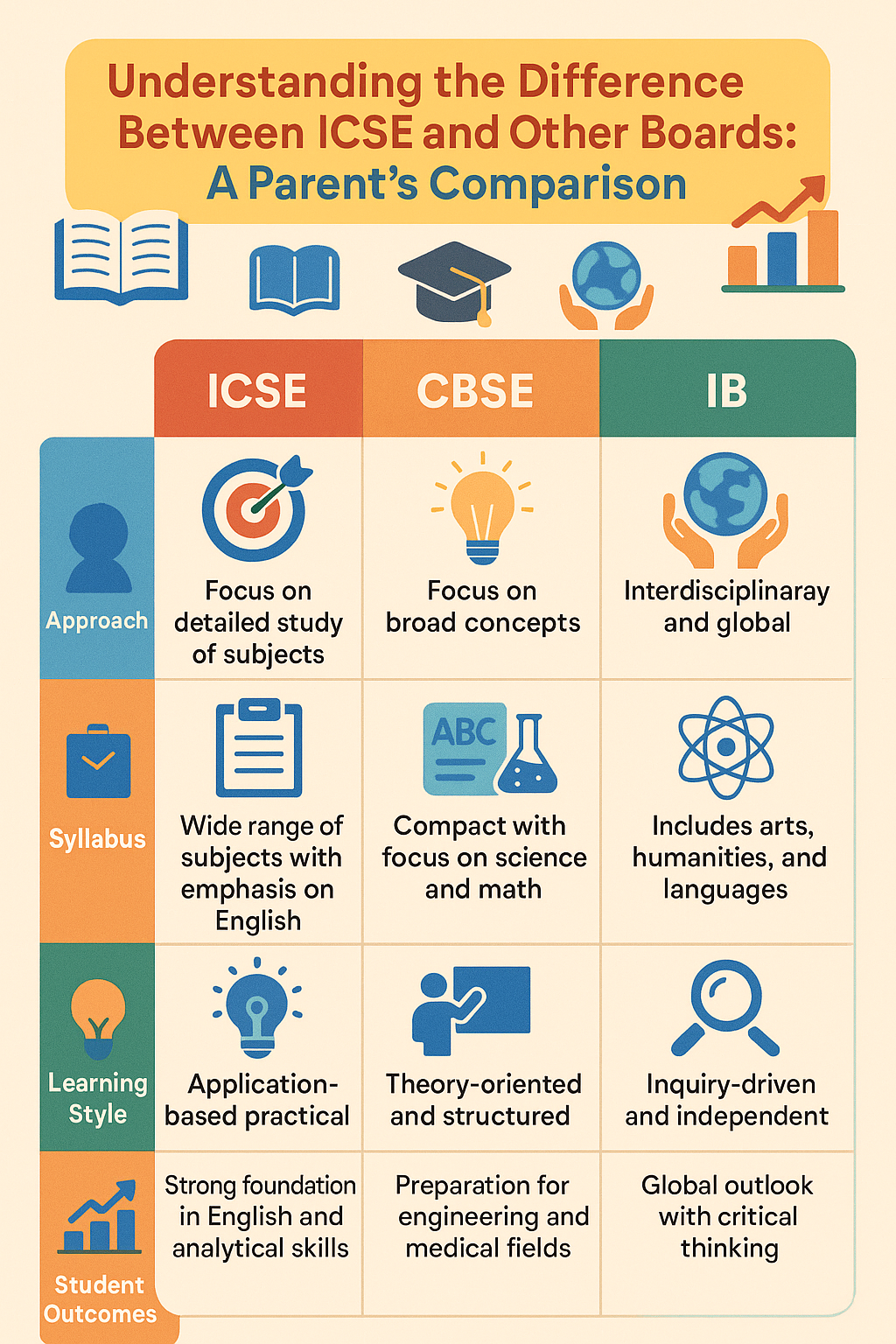
A clear comparison of ICSE, CBSE and IB boards to help parents understand differences in approach, syllabus,...
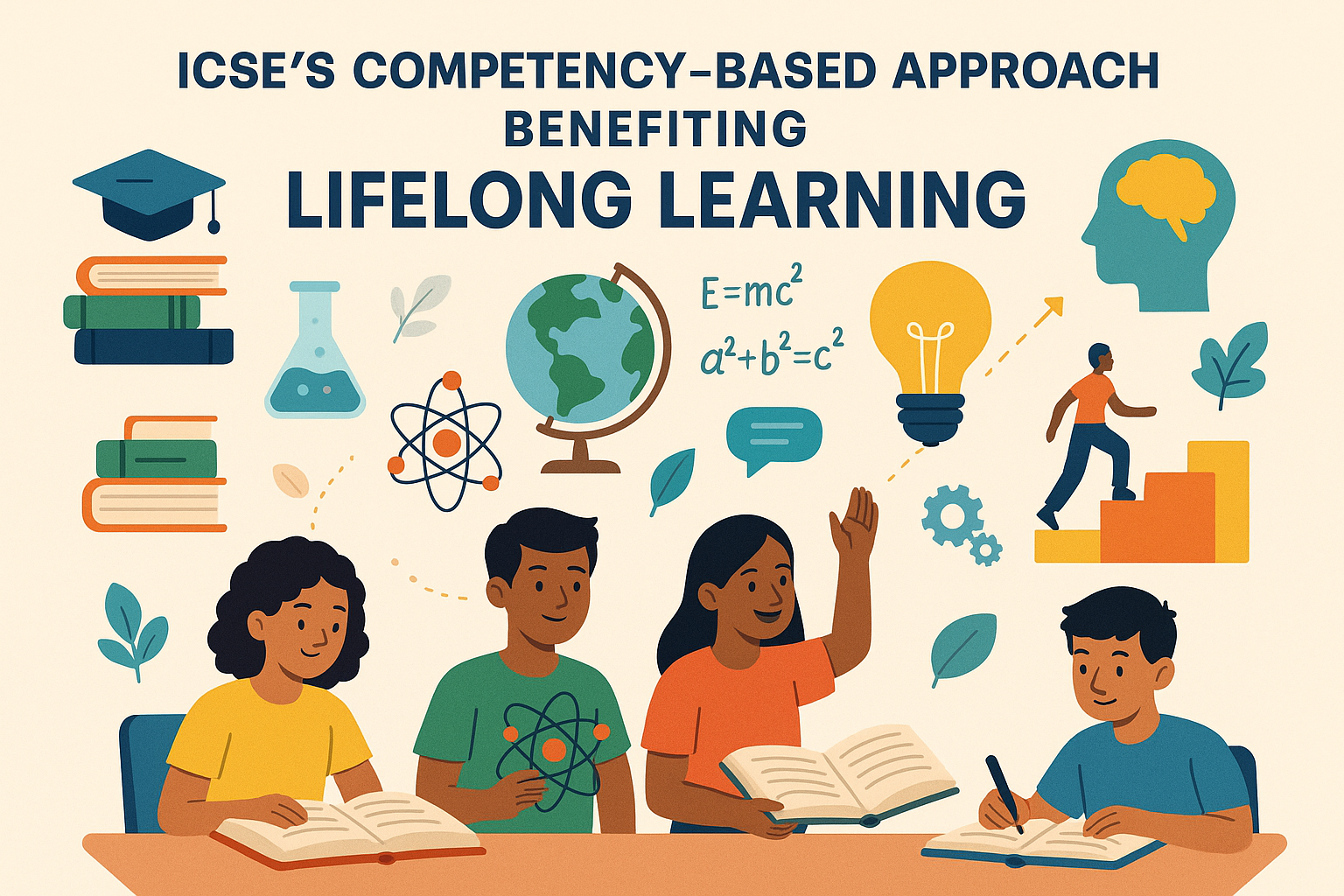
Explore how ICSE’s competency-based approach strengthens understanding, real-world thinking and lifelong learning...
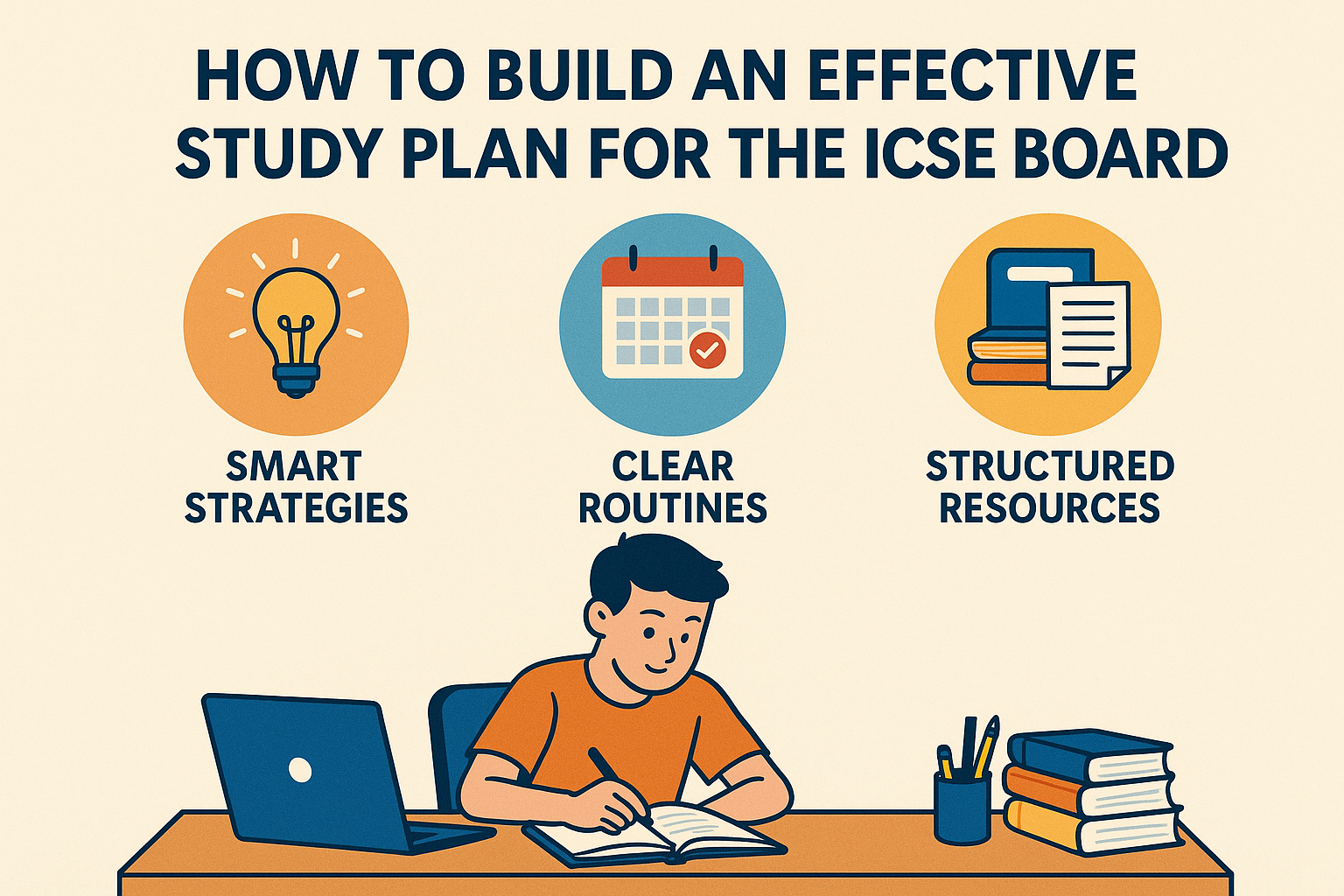
Learn how to build an effective ICSE study plan with smart strategies, clear routines and structured resources for...
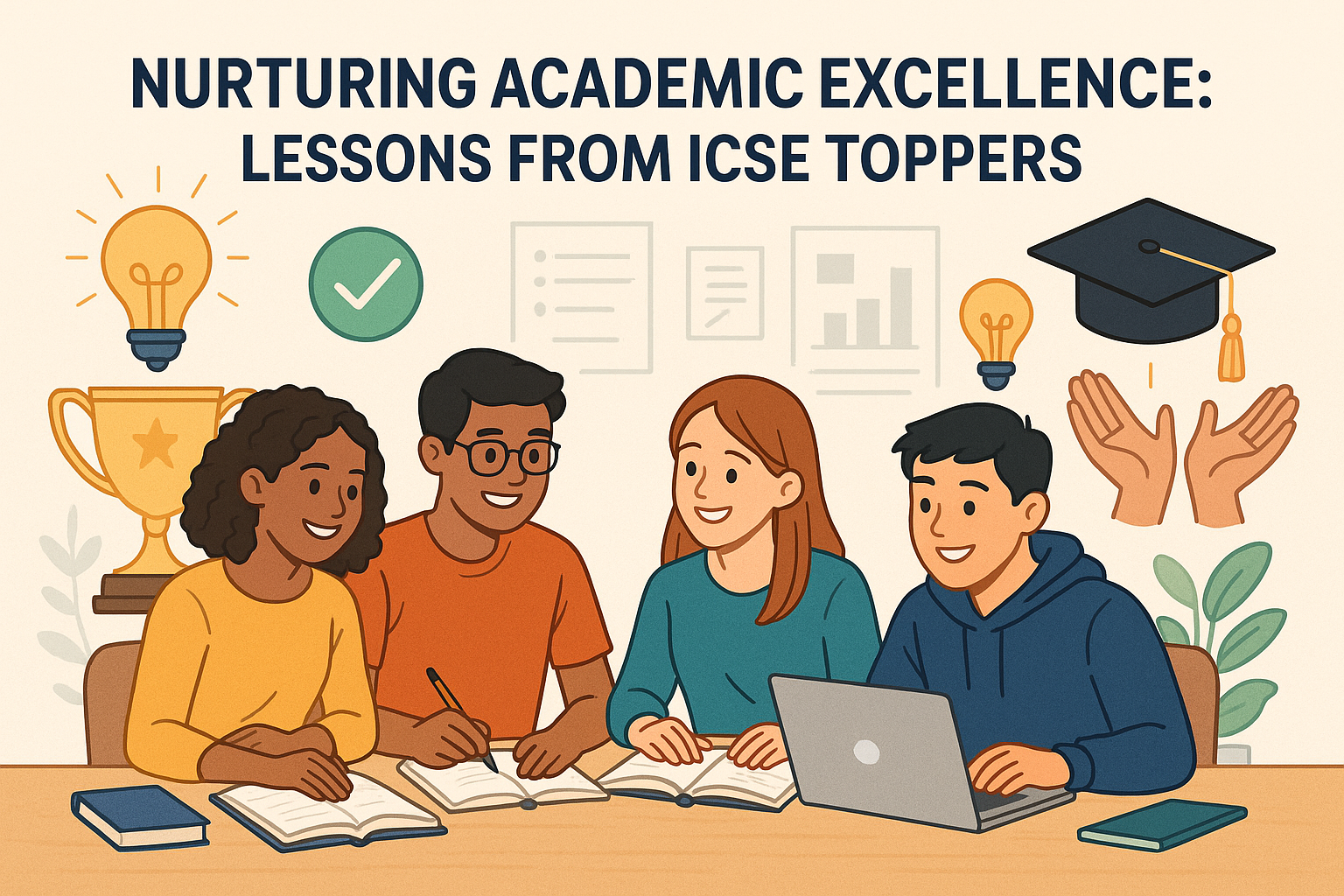
Learn how ICSE toppers study, stay consistent and master concepts. A complete guide for parents and students...
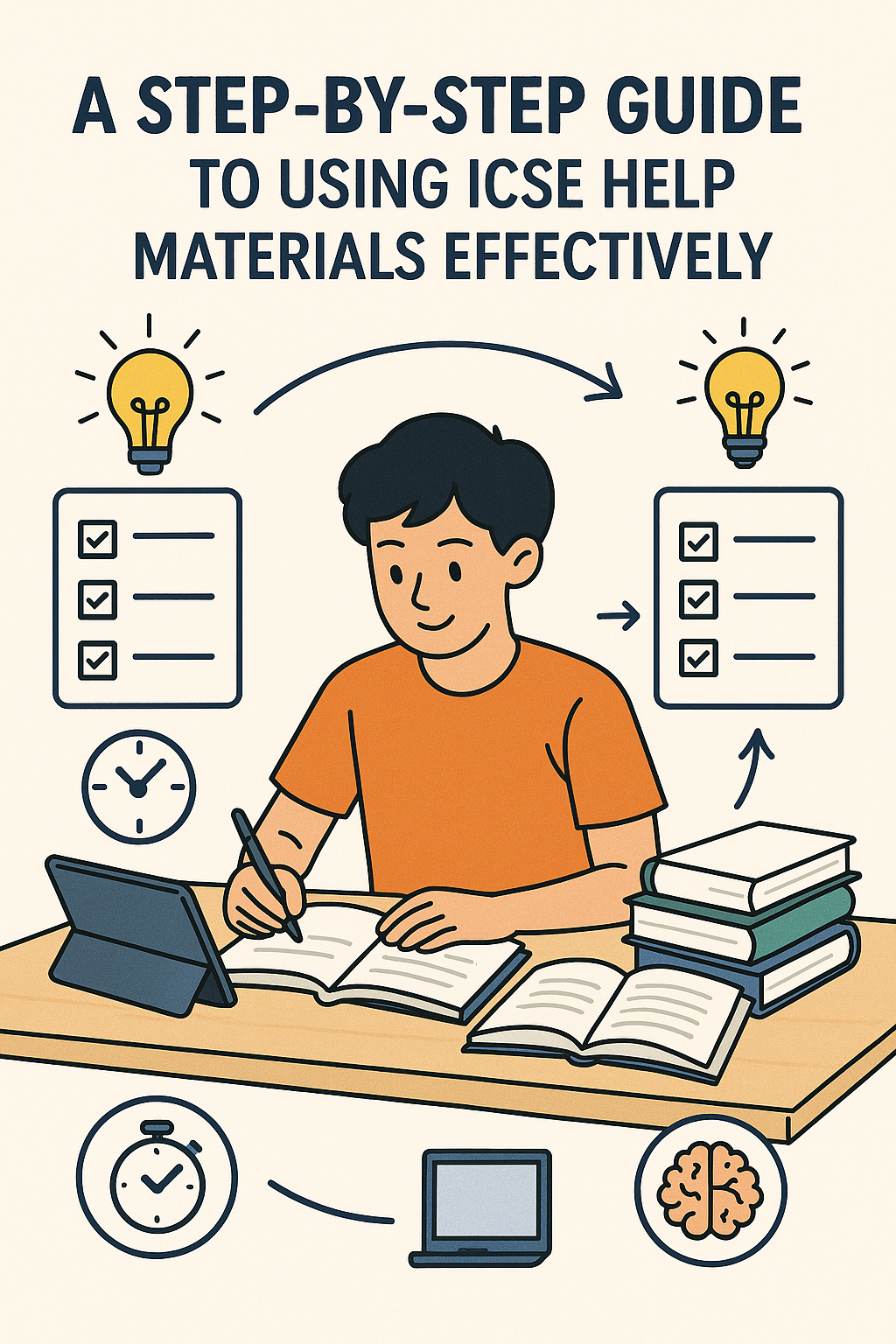
A complete step-by-step guide to using ICSE help materials effectively so students learn faster, stay organised and...

A complete guide for students and parents to prepare effectively for the ICSE exam with proven study strategies,...
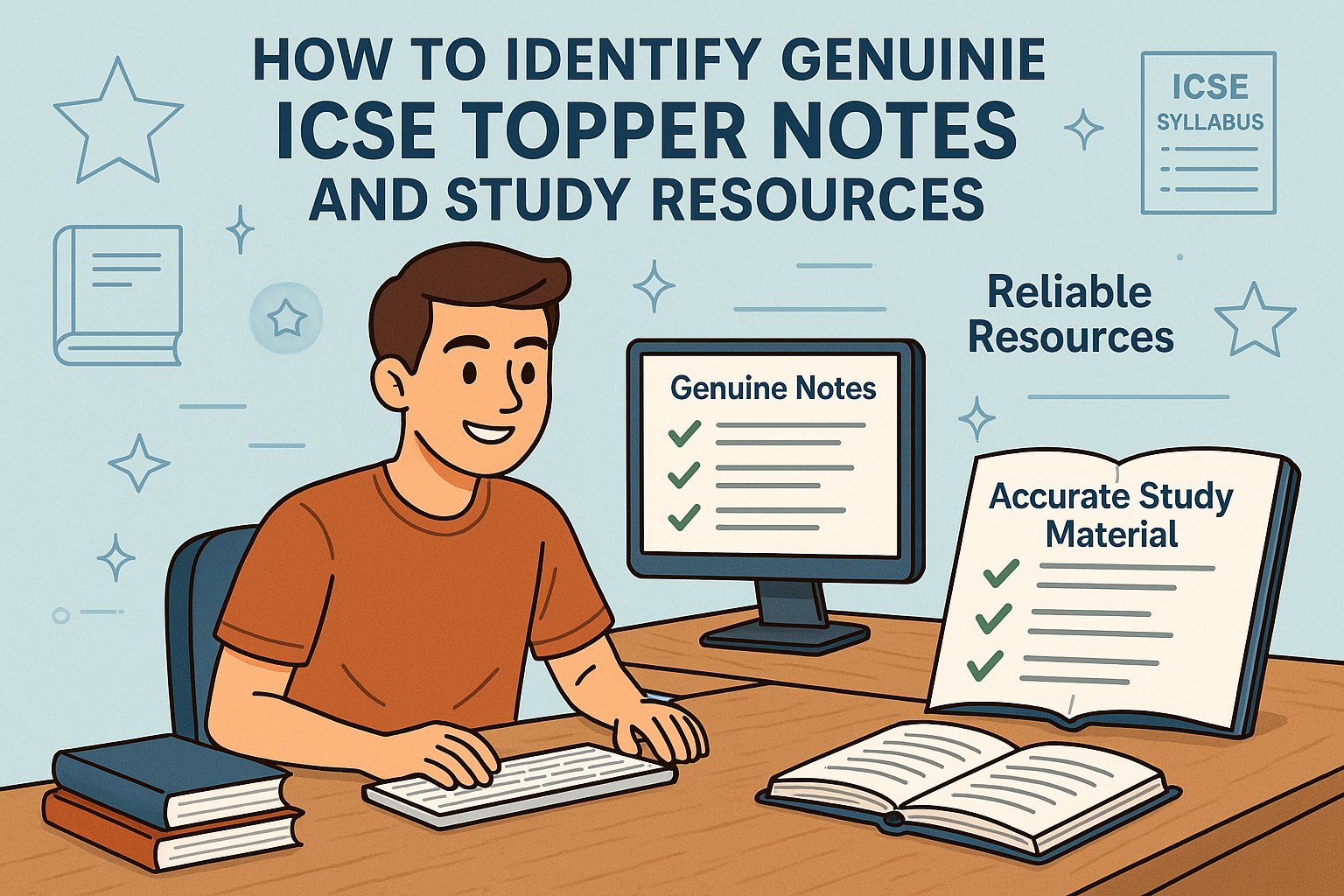
A detailed guide for parents and students to identify genuine ICSE topper notes, reliable resources and accurate...
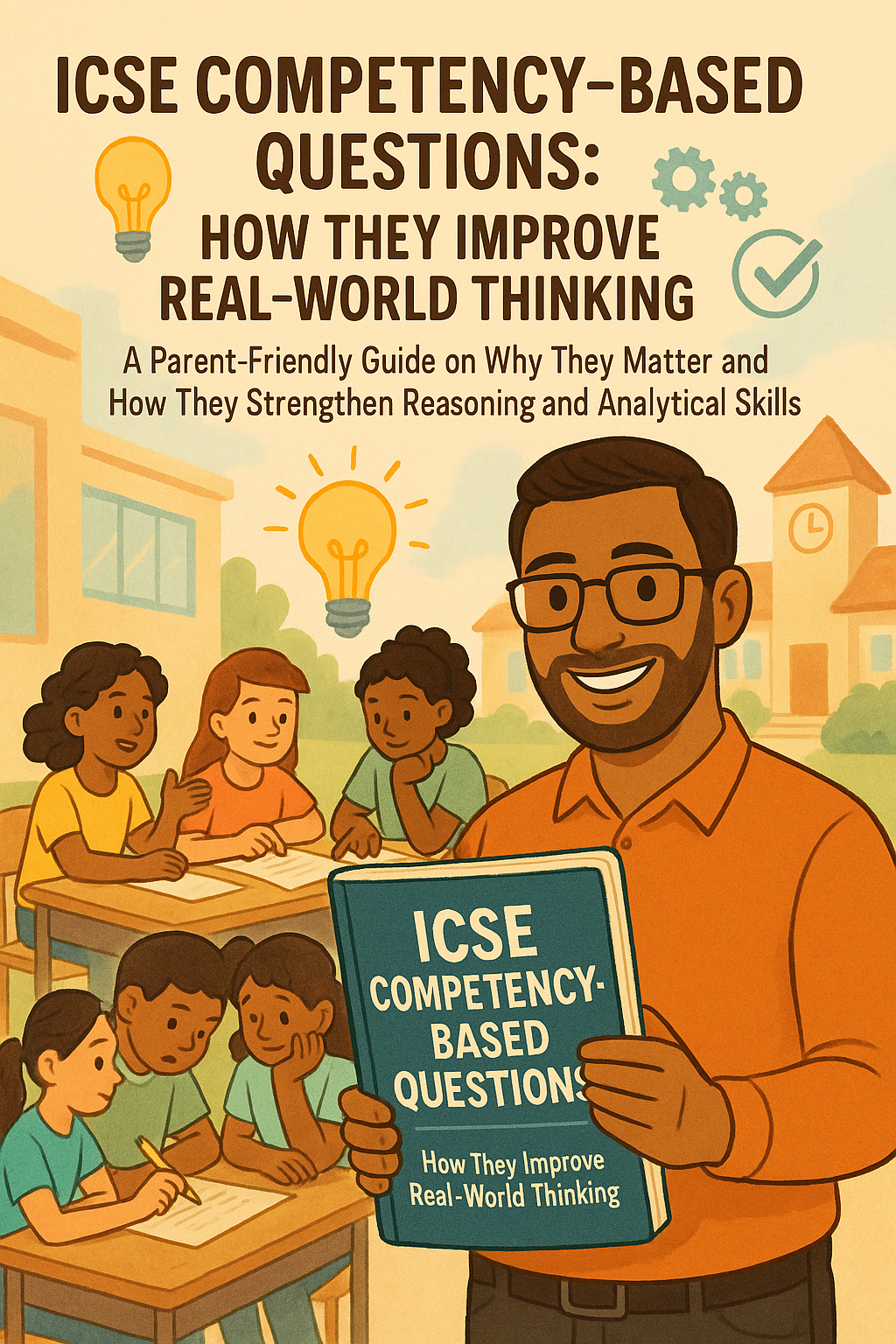
A parent-friendly guide to ICSE competency-based questions, why they matter and how they strengthen real-world...
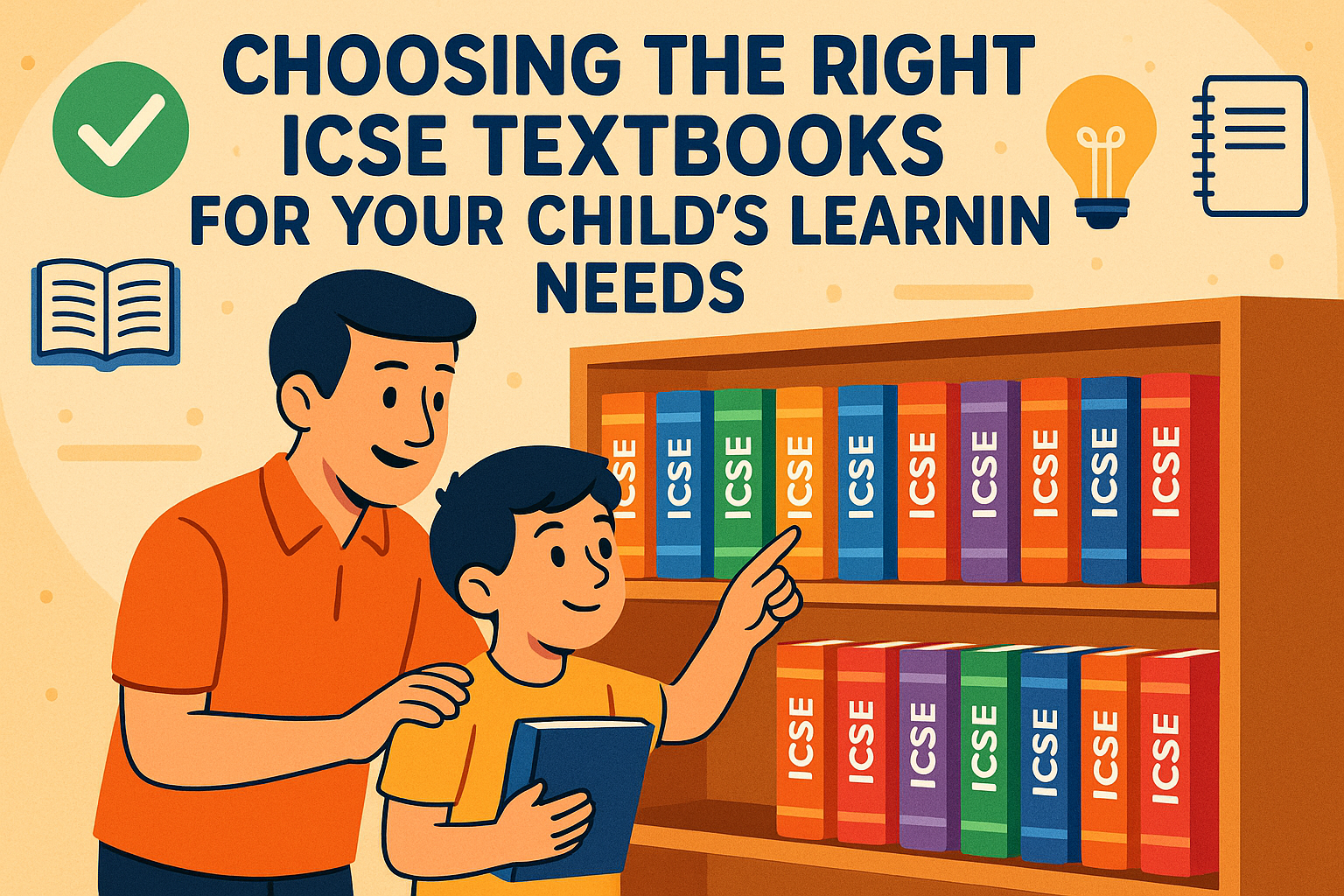
A complete guide to choosing the right ICSE textbooks for your child, with tips on syllabus alignment, clarity,...
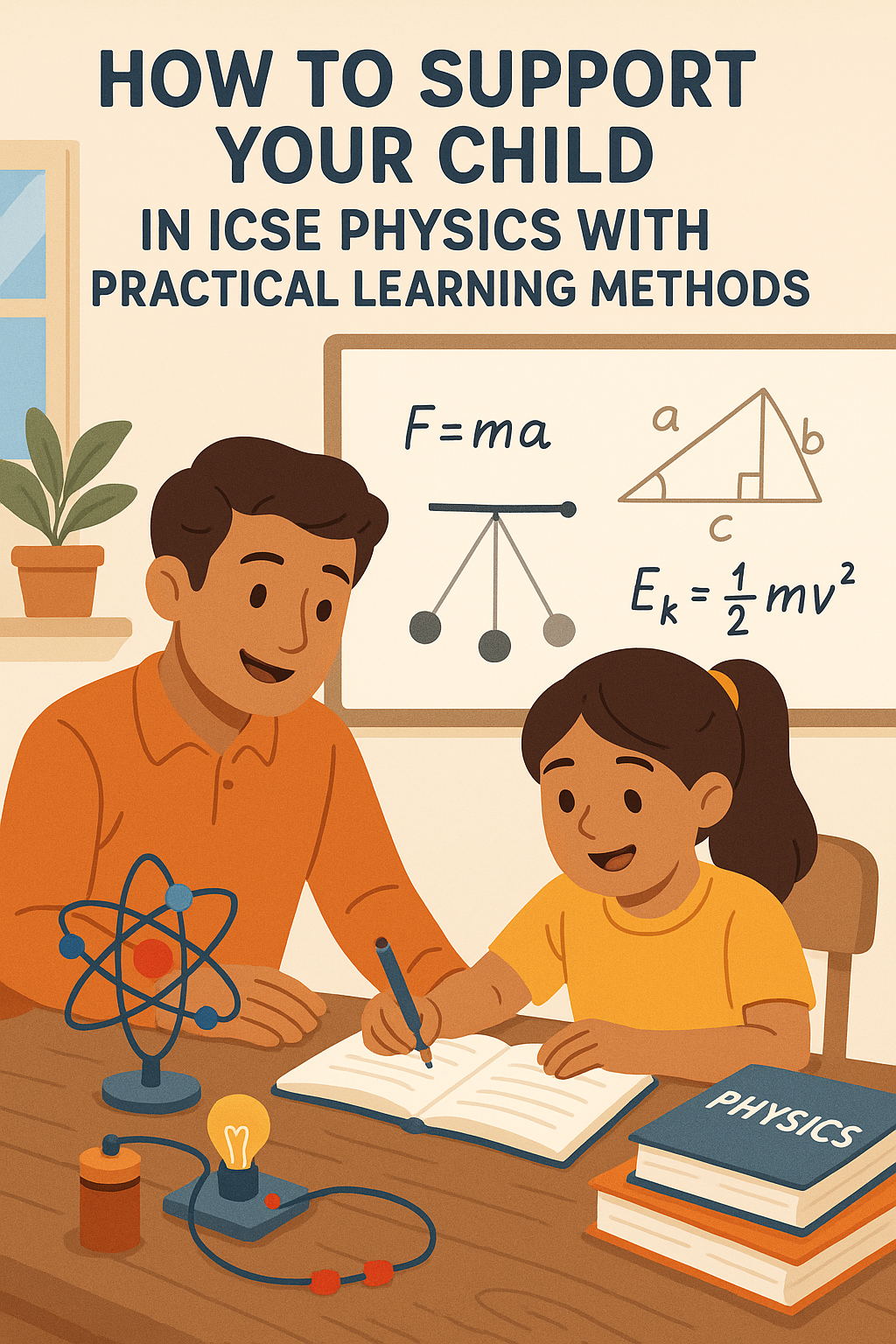
A parent-friendly guide to supporting children in ICSE Physics using practical methods, real-life learning and...
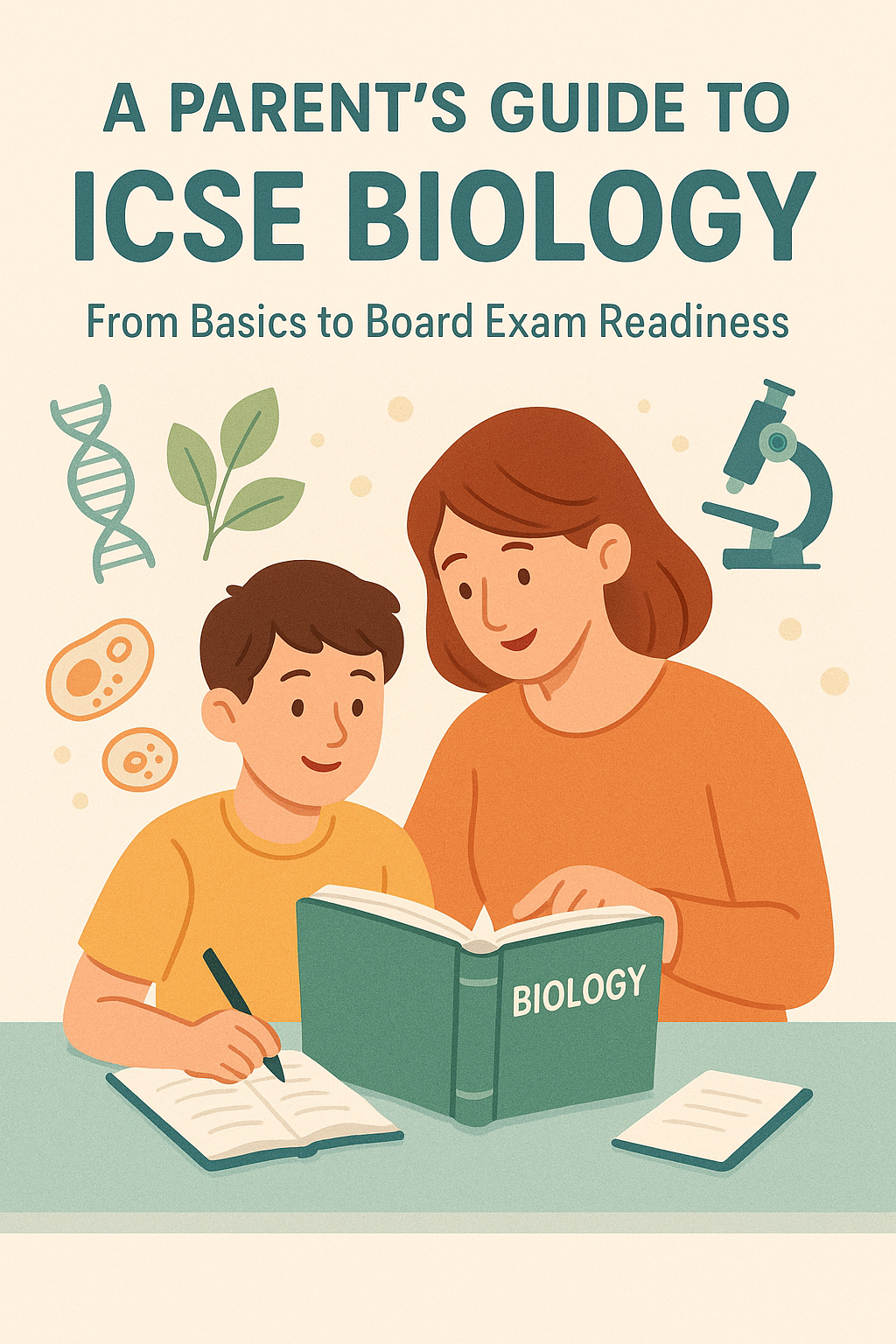
A complete parent-friendly guide to ICSE Biology, covering basics, syllabus insights and steps to help students...
.jpg?width=500)
Build strong ICSE Chemistry fundamentals with simplified concepts, smart study strategies, and structured ICSE help...
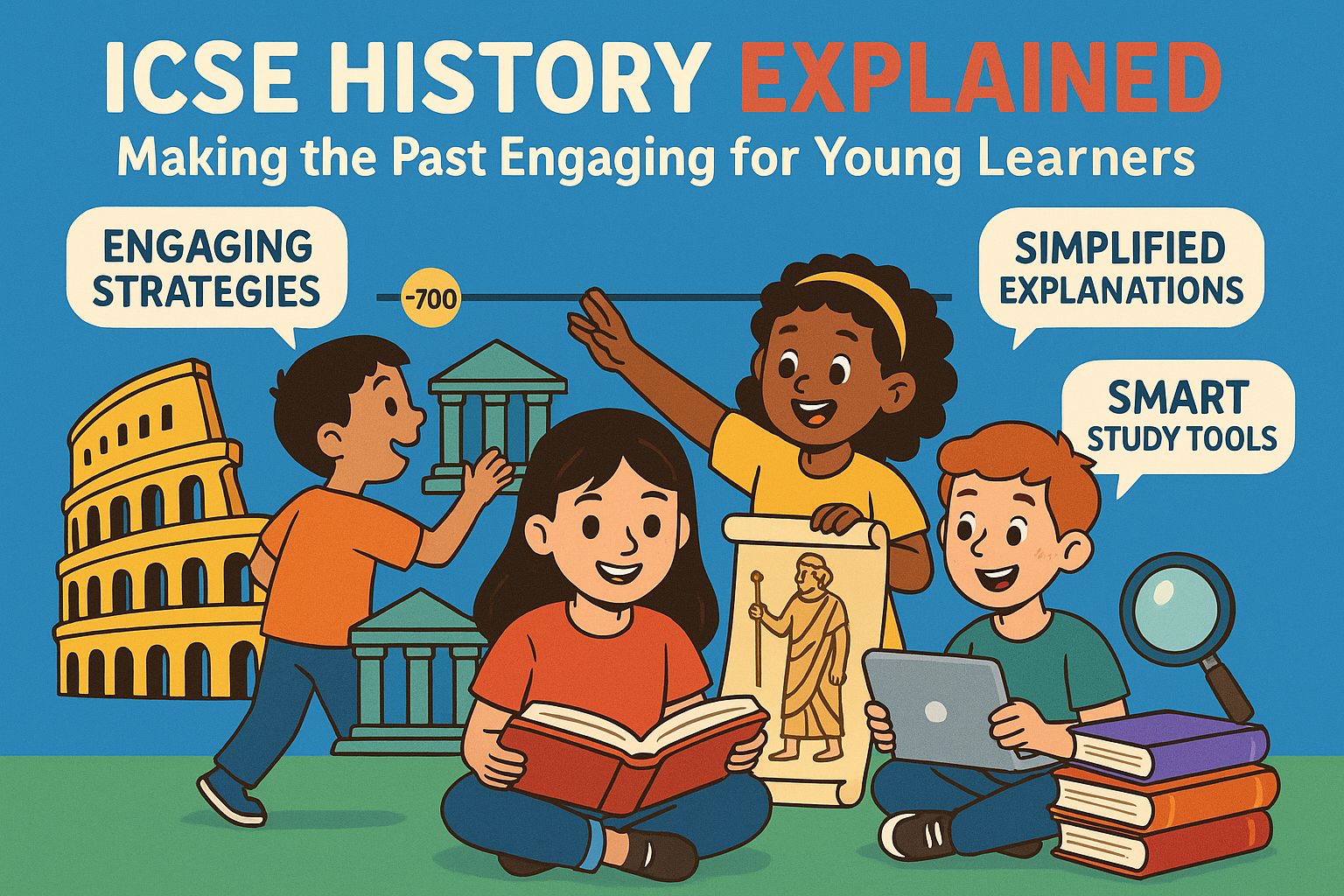
Improve ICSE History learning with engaging strategies, simplified explanations, and smart study tools. Help...
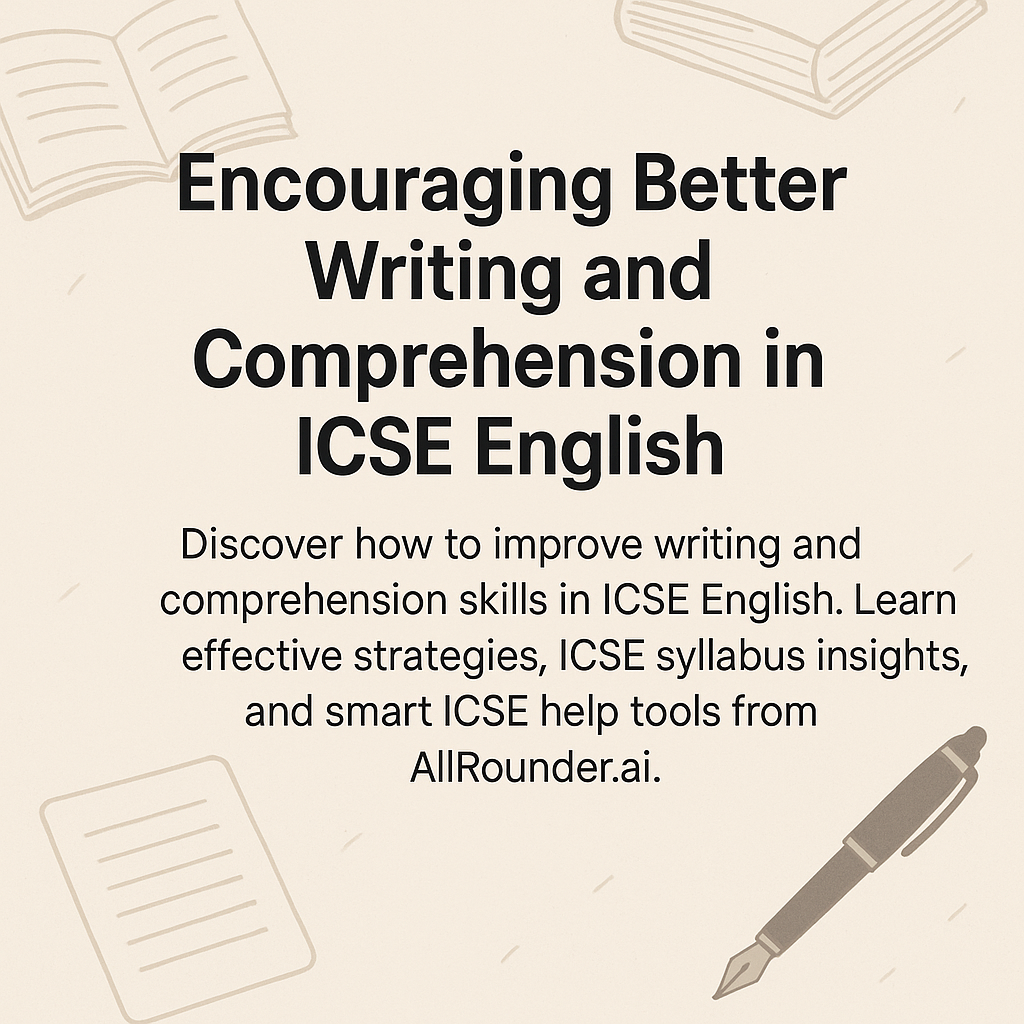
Discover how to improve writing and comprehension skills in ICSE English. Learn effective strategies, ICSE syllabus...
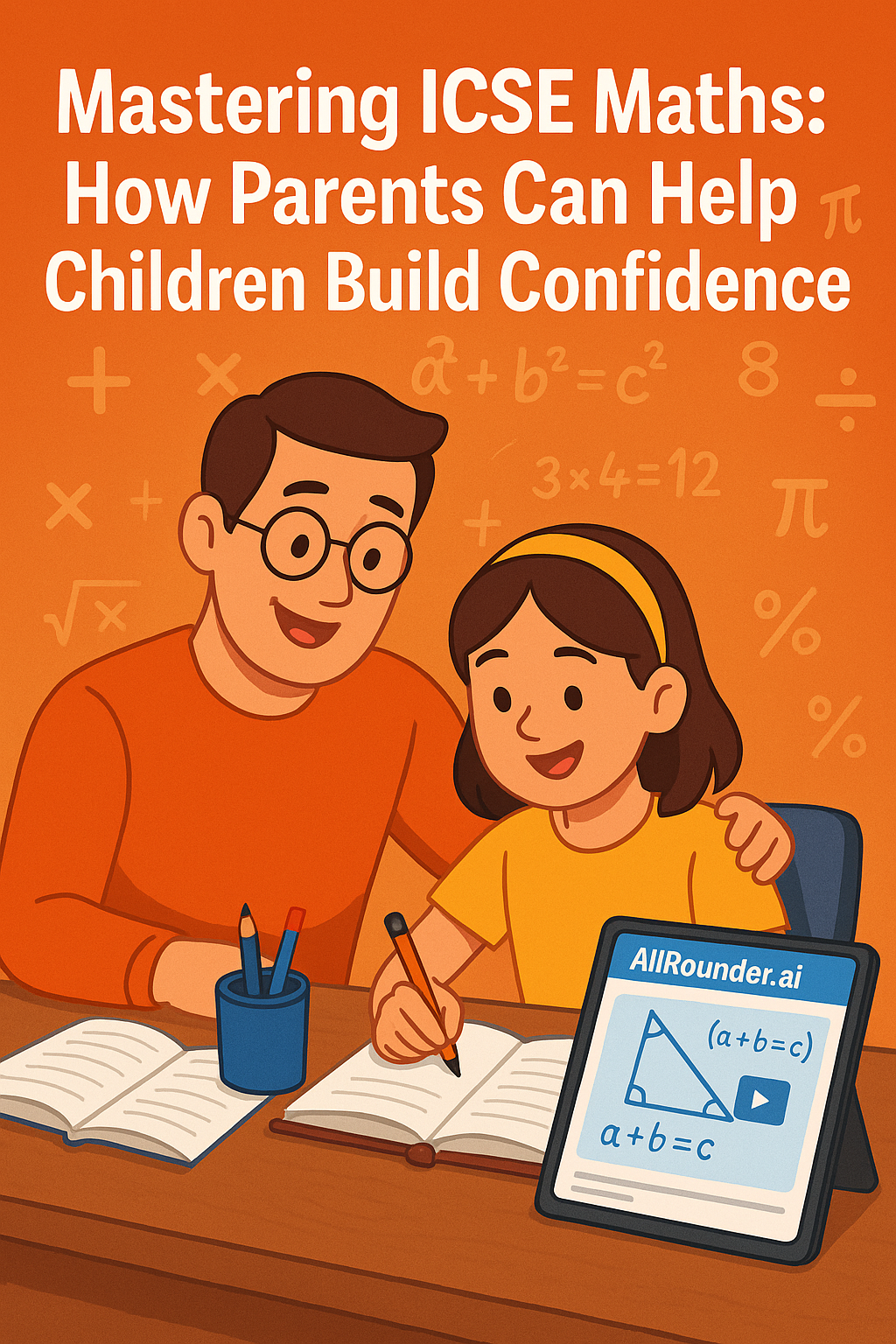
Discover practical ways parents can help children master ICSE Maths. Learn about the ICSE syllabus, study...
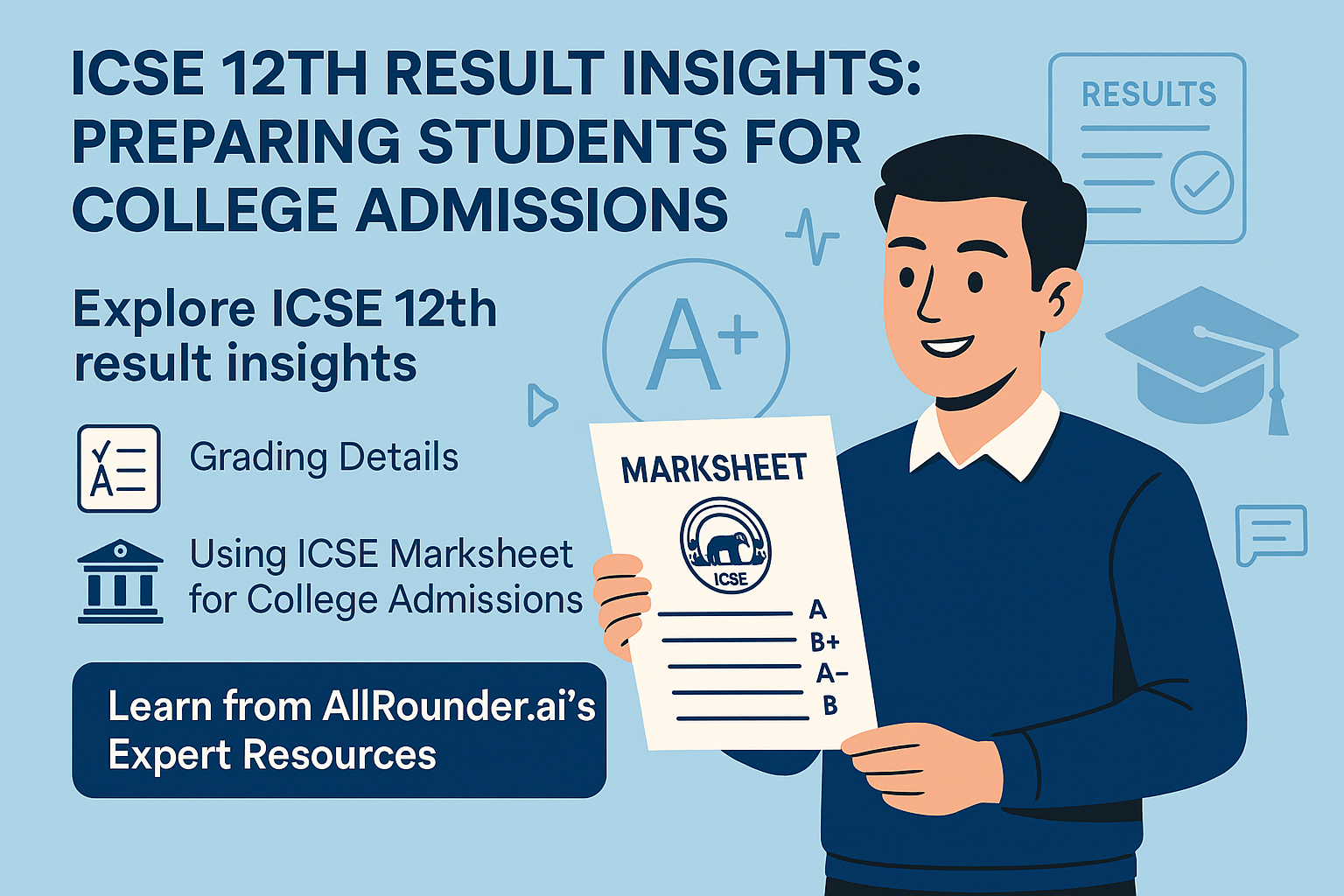
Explore ICSE 12th result insights, grading details, and how to use your ICSE marksheet for college admissions. Learn...
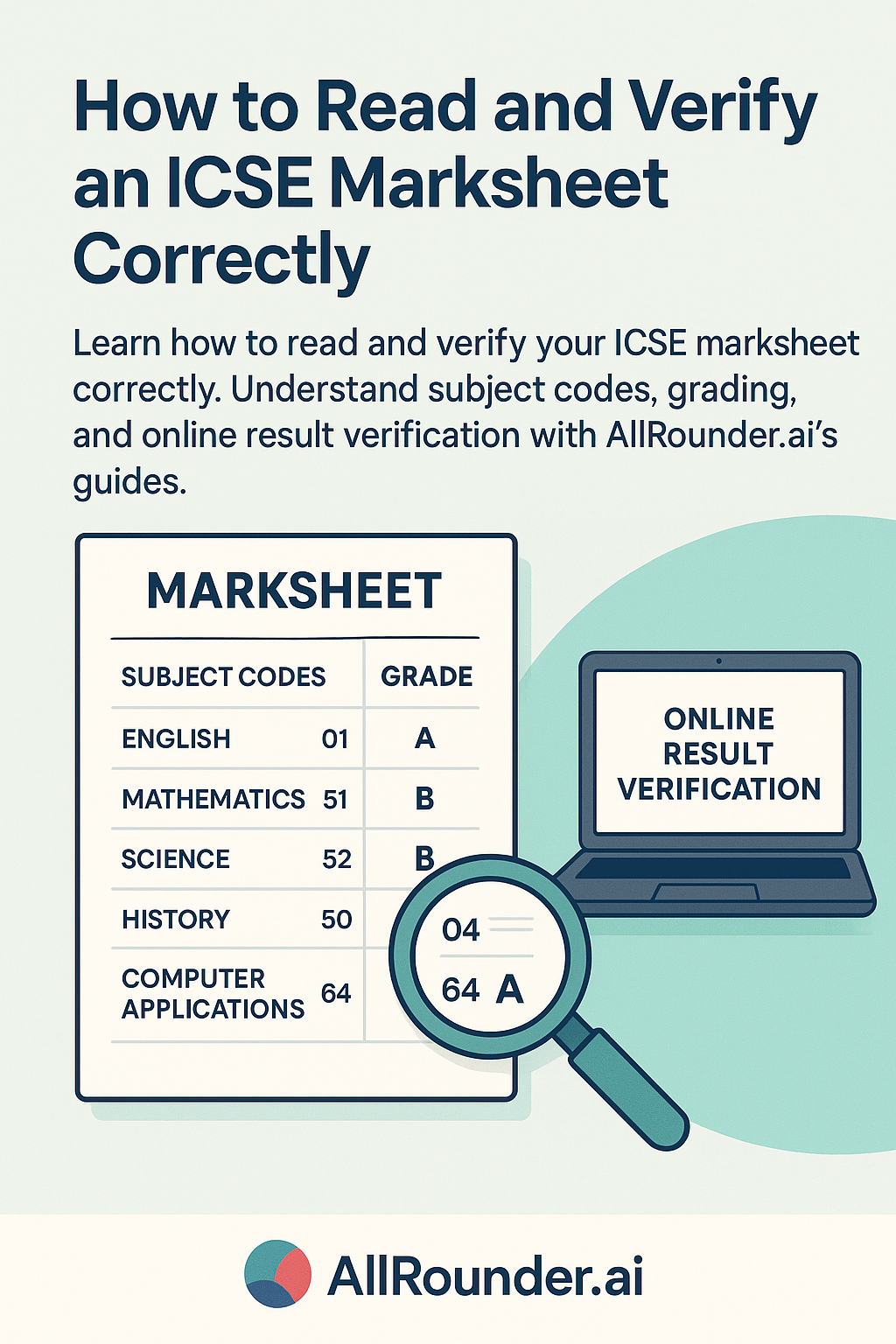
Learn how to read and verify your ICSE marksheet correctly. Understand subject codes, grading, and online result...
.jpg?width=500)
Explore key ICSE 10th result trends, marking patterns, and expert tips to excel in the ICSE exam with...
.jpg?width=500)
Master concept-heavy ICSE subjects with simple study strategies, smart tools, and AllRounder.ai’s personalized...
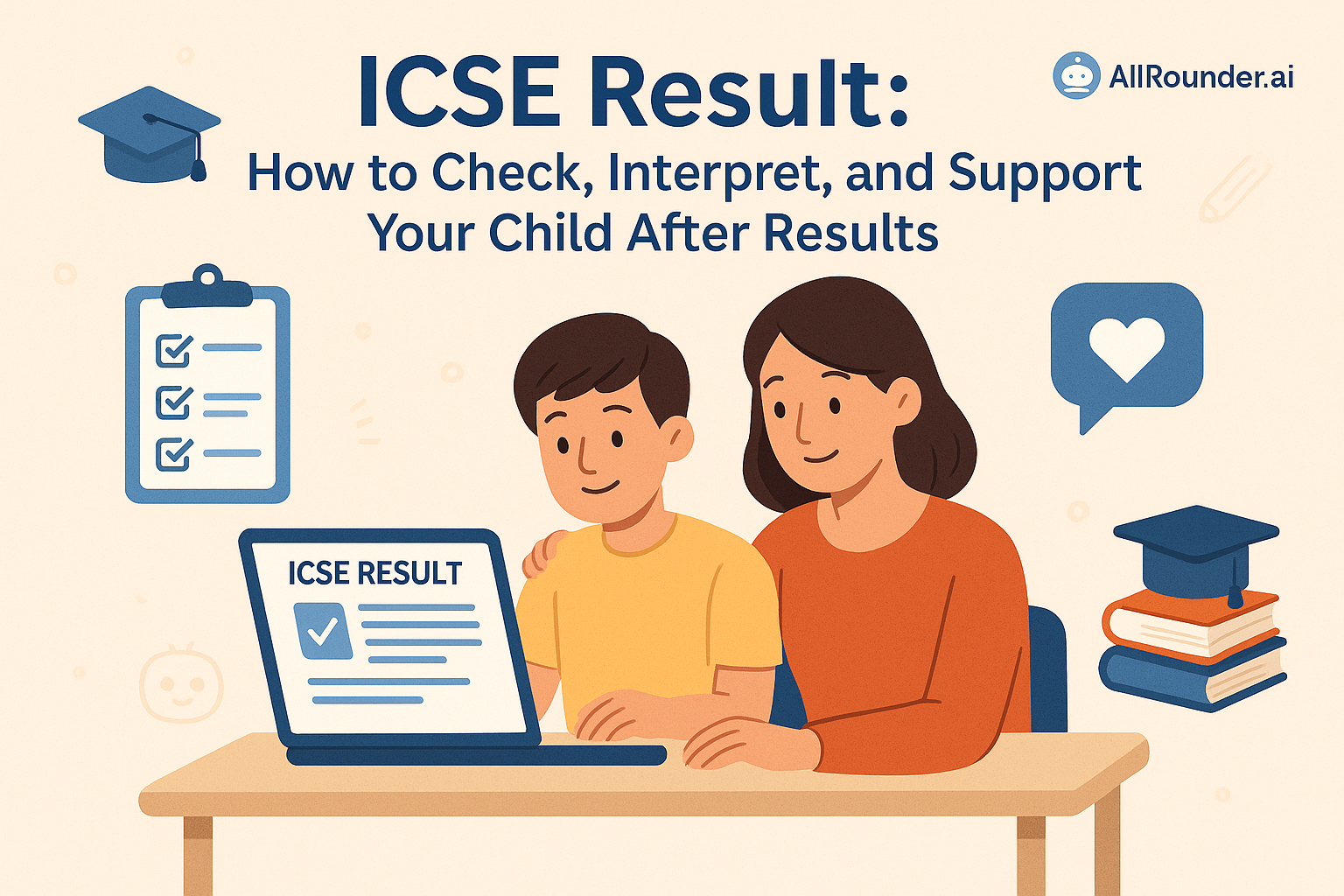
Learn how to check ICSE results, understand grading, and support your child emotionally and academically with help...
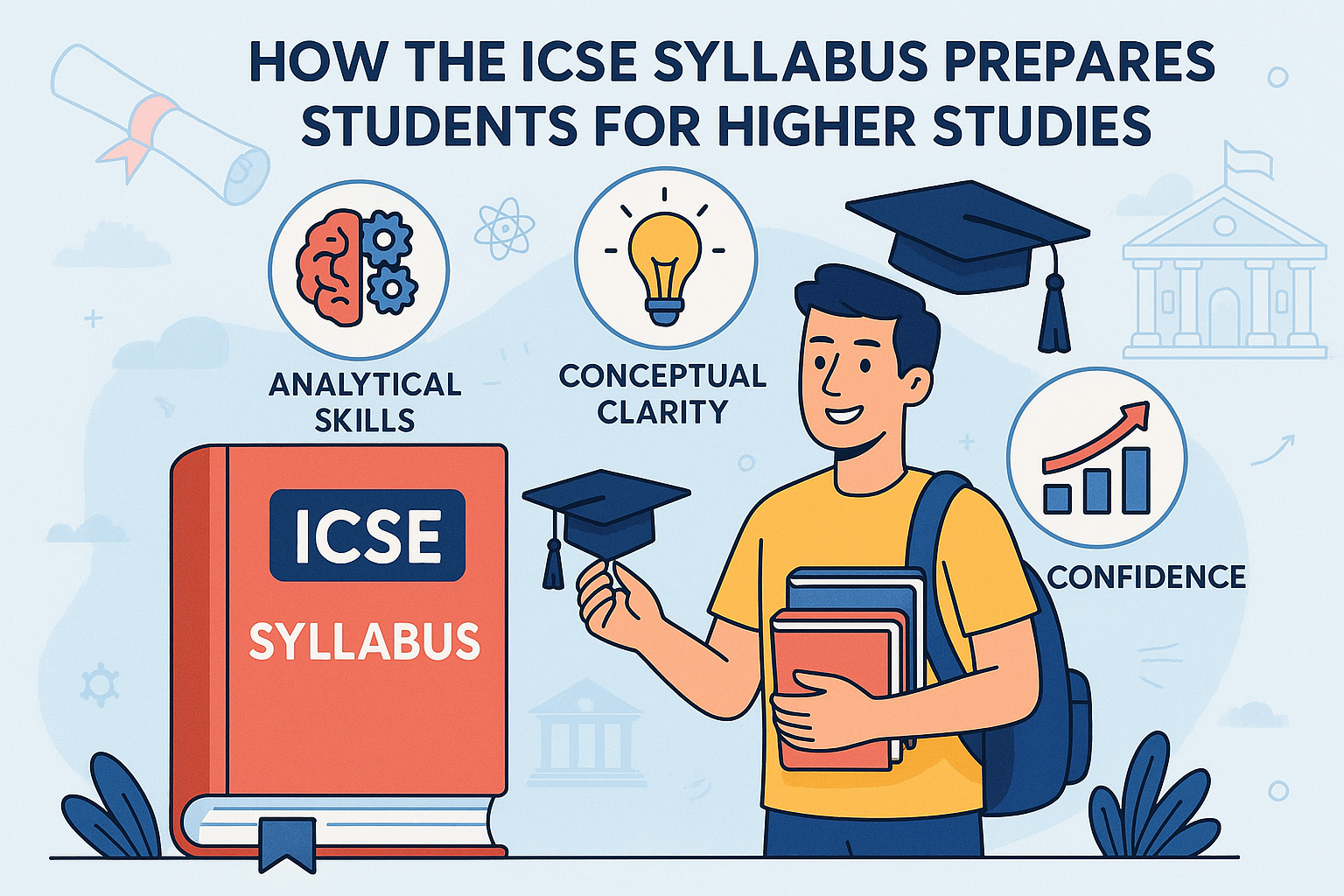
Discover how the ICSE syllabus builds analytical skills, conceptual clarity, and confidence to prepare students for...
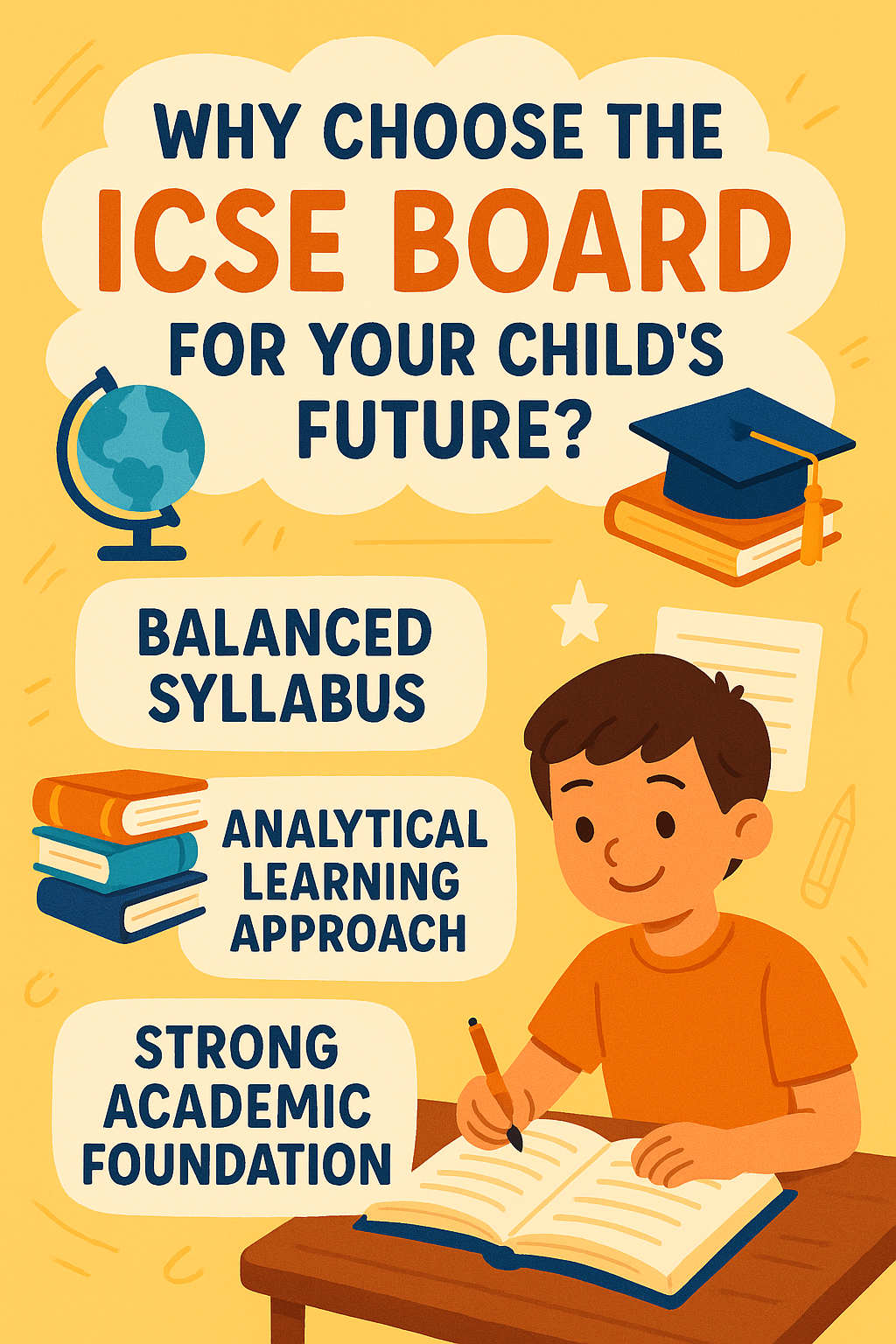
Discover why the ICSE board is ideal for your child’s future with its balanced syllabus, analytical learning...
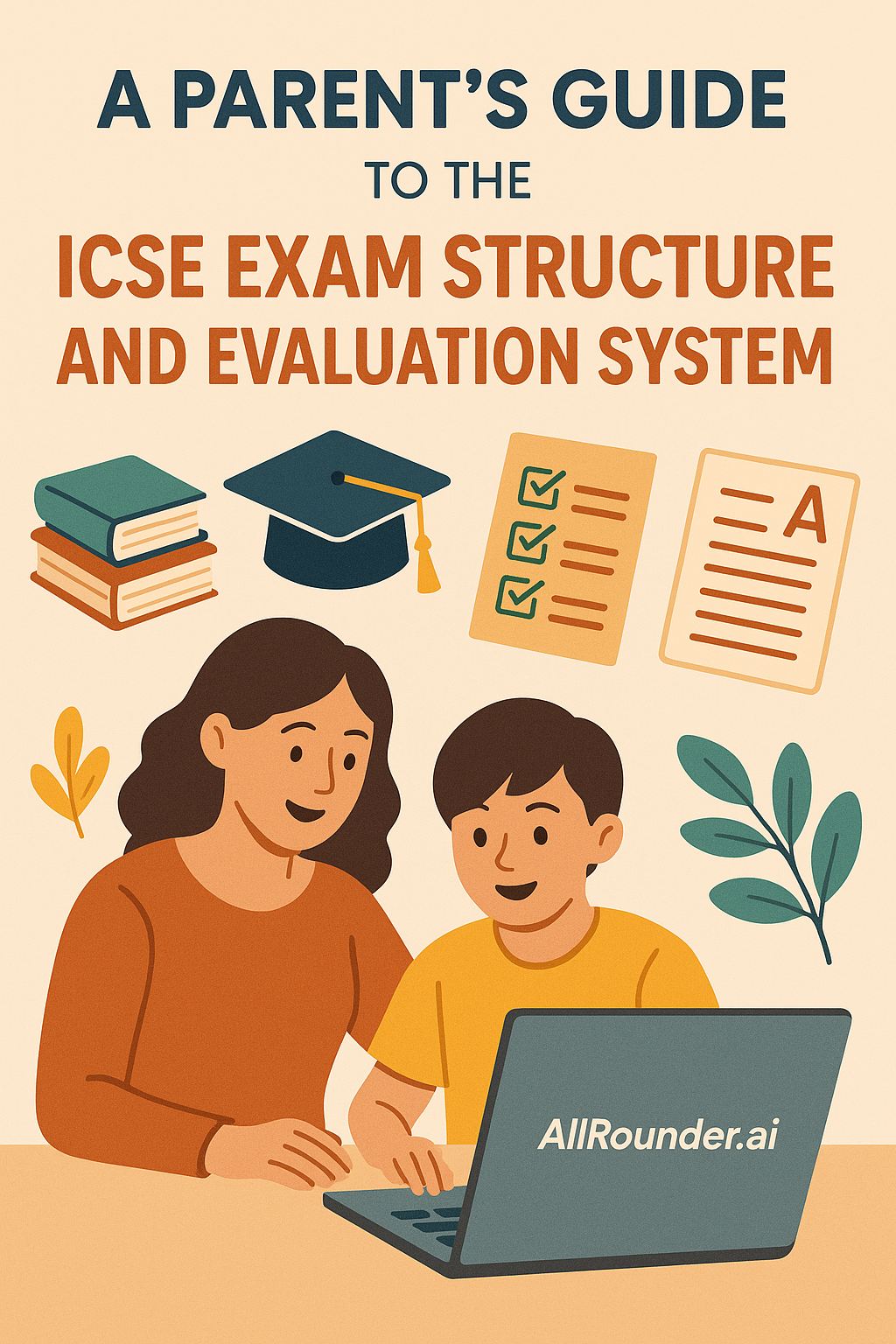
Understand how the ICSE exam system works with this detailed parent’s guide. Learn about subjects, evaluation...
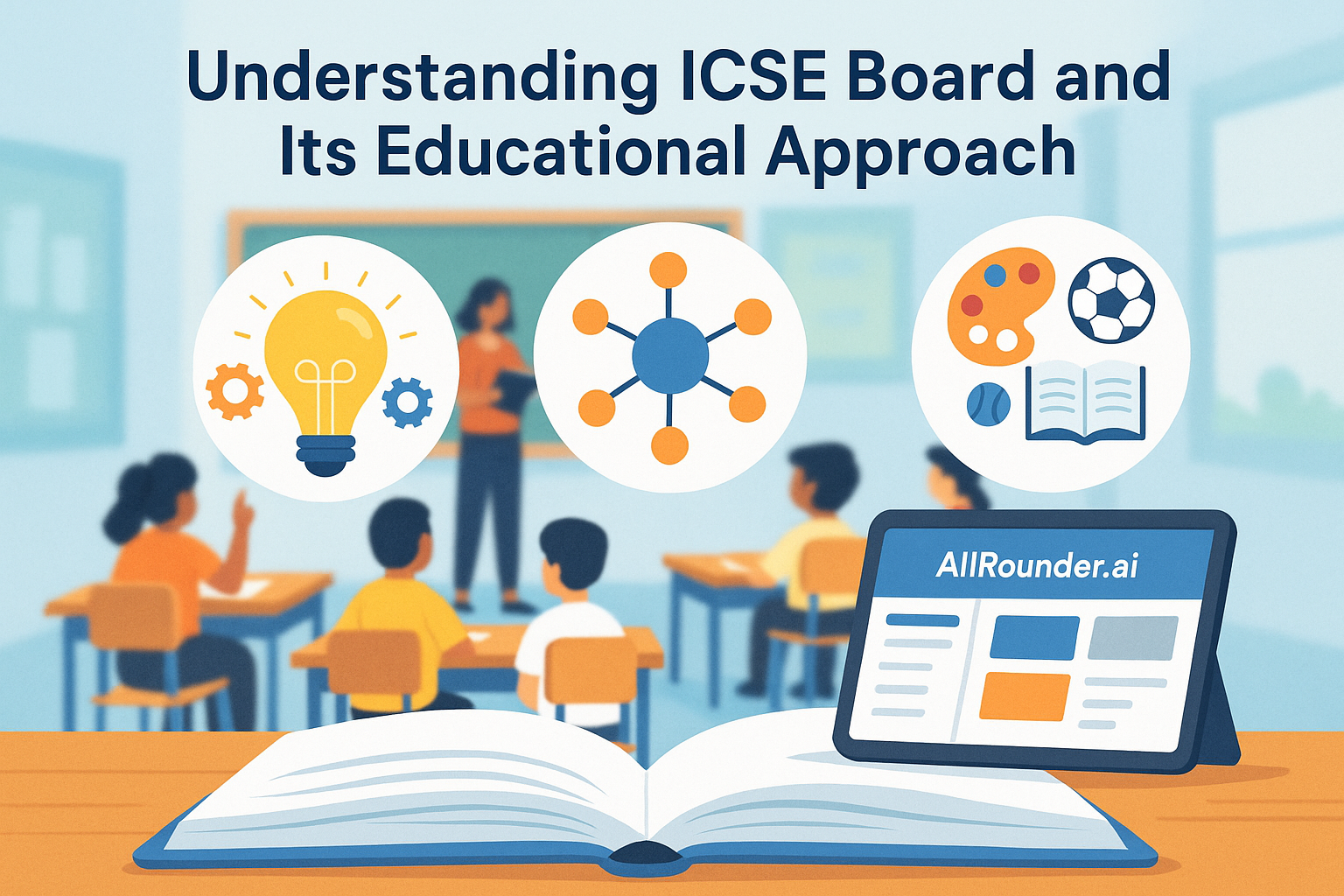
Learn how the ICSE board promotes analytical thinking, conceptual understanding, and balanced development. Discover...
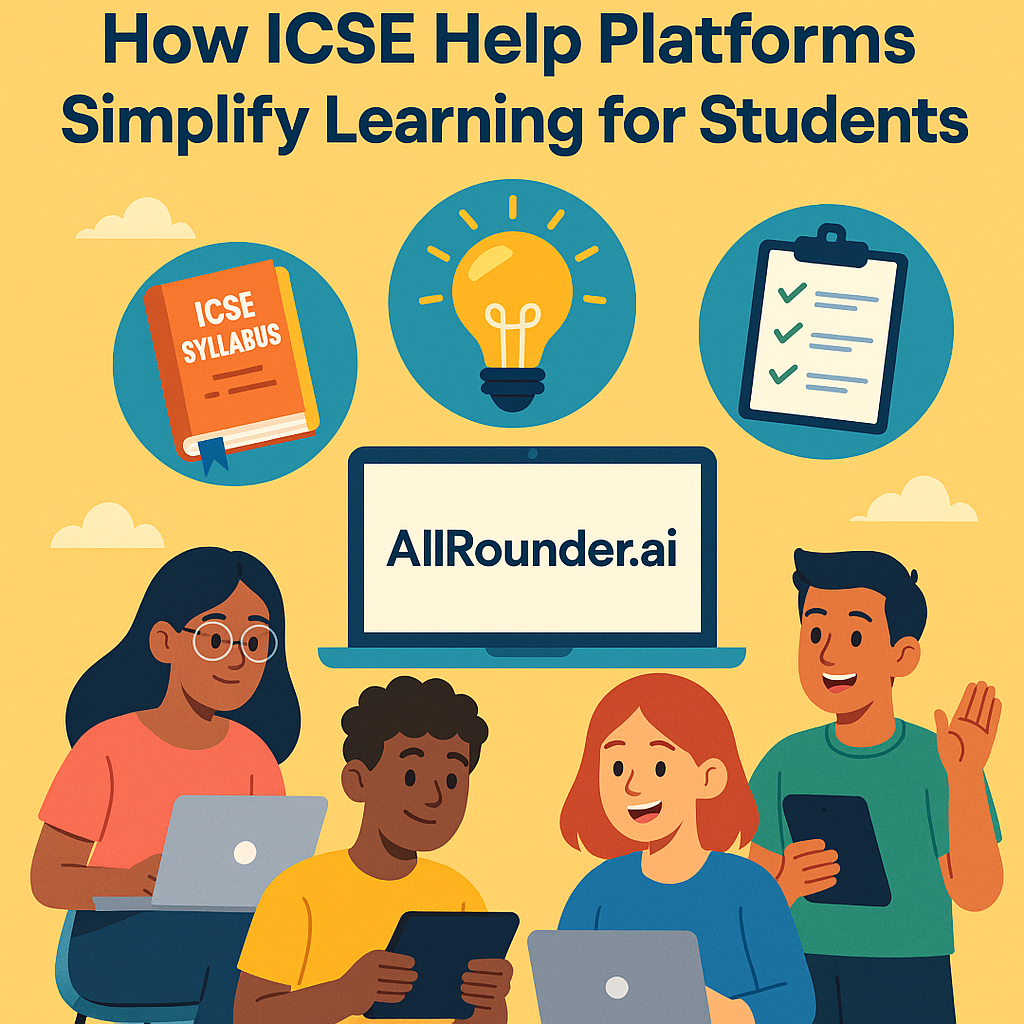
Explore how ICSE help platforms like AllRounder.ai make learning simpler for students by breaking down the ICSE...

A complete guide to the ICSE Class 10 Computer Applications project work. Learn how to choose a topic, plan design,...

Discover the best reference books for Class 10 ICSE Maths. Learn how to use them effectively with AllRounder.ai’s...

Planning for ICSE school fees? Our guide breaks down the costs in major Indian cities, helps you find affordable...

Compare ICSE vs. CBSE to choose the best board for your child. Learn about syllabus differences, teaching styles,...

Learn how to choose the best ICSE subjects for Class 9 and 10. Explore Group I, II, and III subjects, internal...
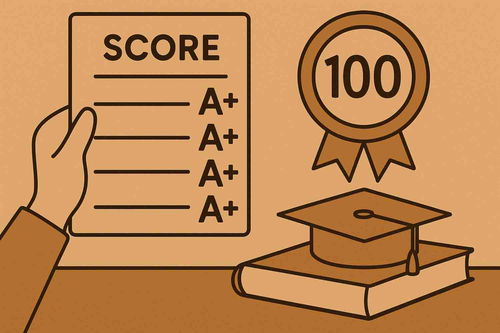
Learn how the ICSE grading system works in 2025–26. Know internal assessments, percentage calculation, and tips to...

Discover how ICSE builds critical thinking, analytical skills, and real-world problem-solving through its unique...
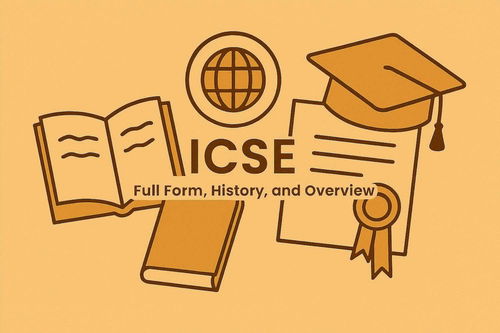
Understand the ICSE board – its history, structure, curriculum, and unique advantages over other boards.
Resources
-
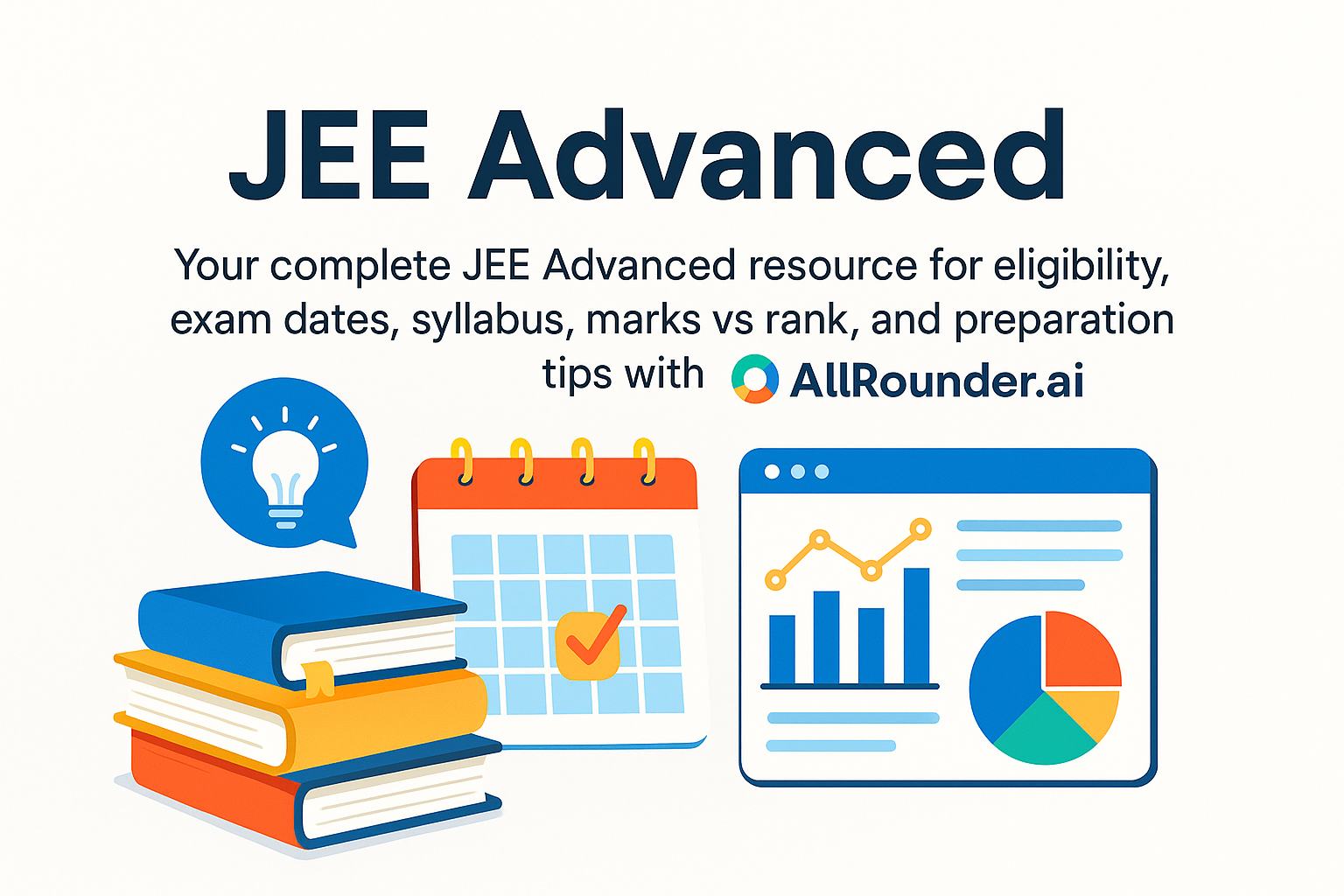
Your complete JEE Advanced resource for eligibility, exam dates, syllabus, marks vs rank, and...
-

Understand the entire JEE Main process, from application and eligibility rules to the exam...
-

Explore the IB Board – a global curriculum emphasizing holistic, student-centered learning...
-

Learn about CBSE – India’s national school board offering a standardized curriculum, NCERT...
-

Explore everything about the ICSE board – its curriculum, subjects, exam format, and academic...

